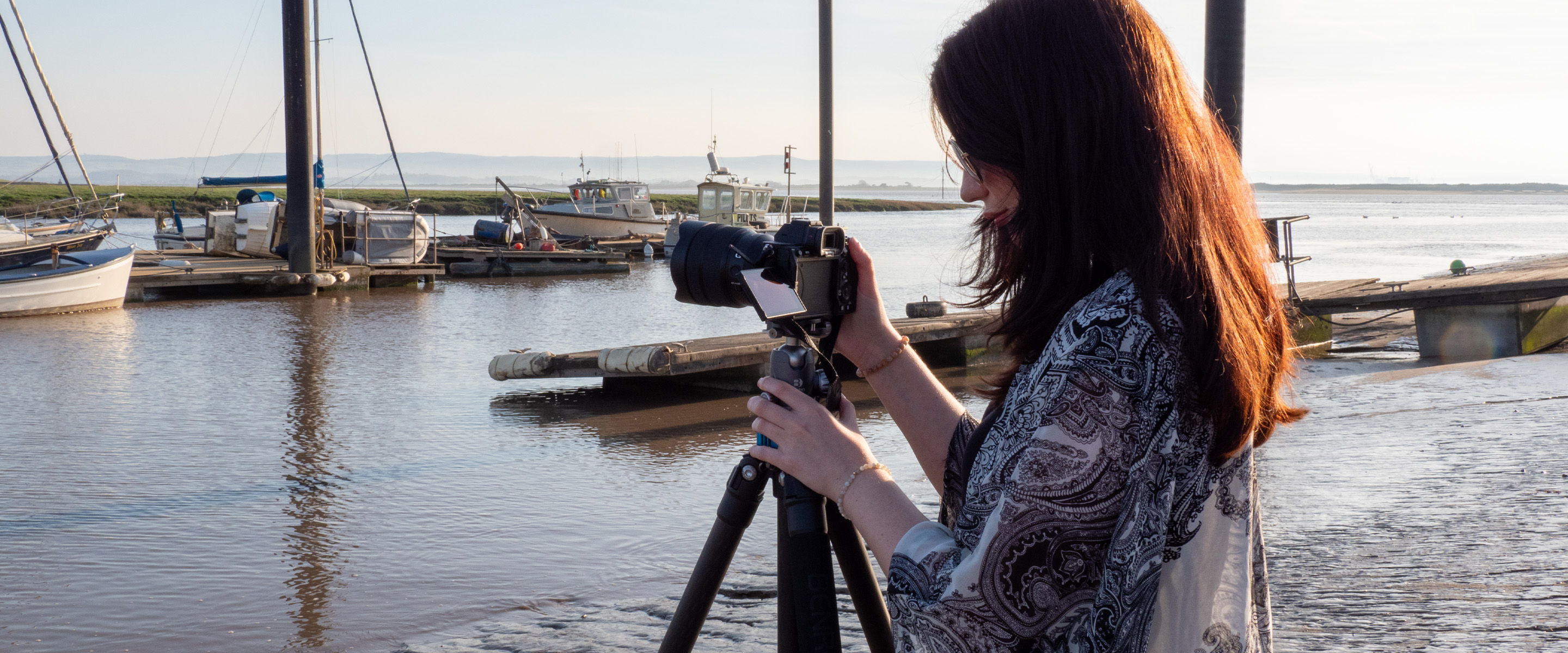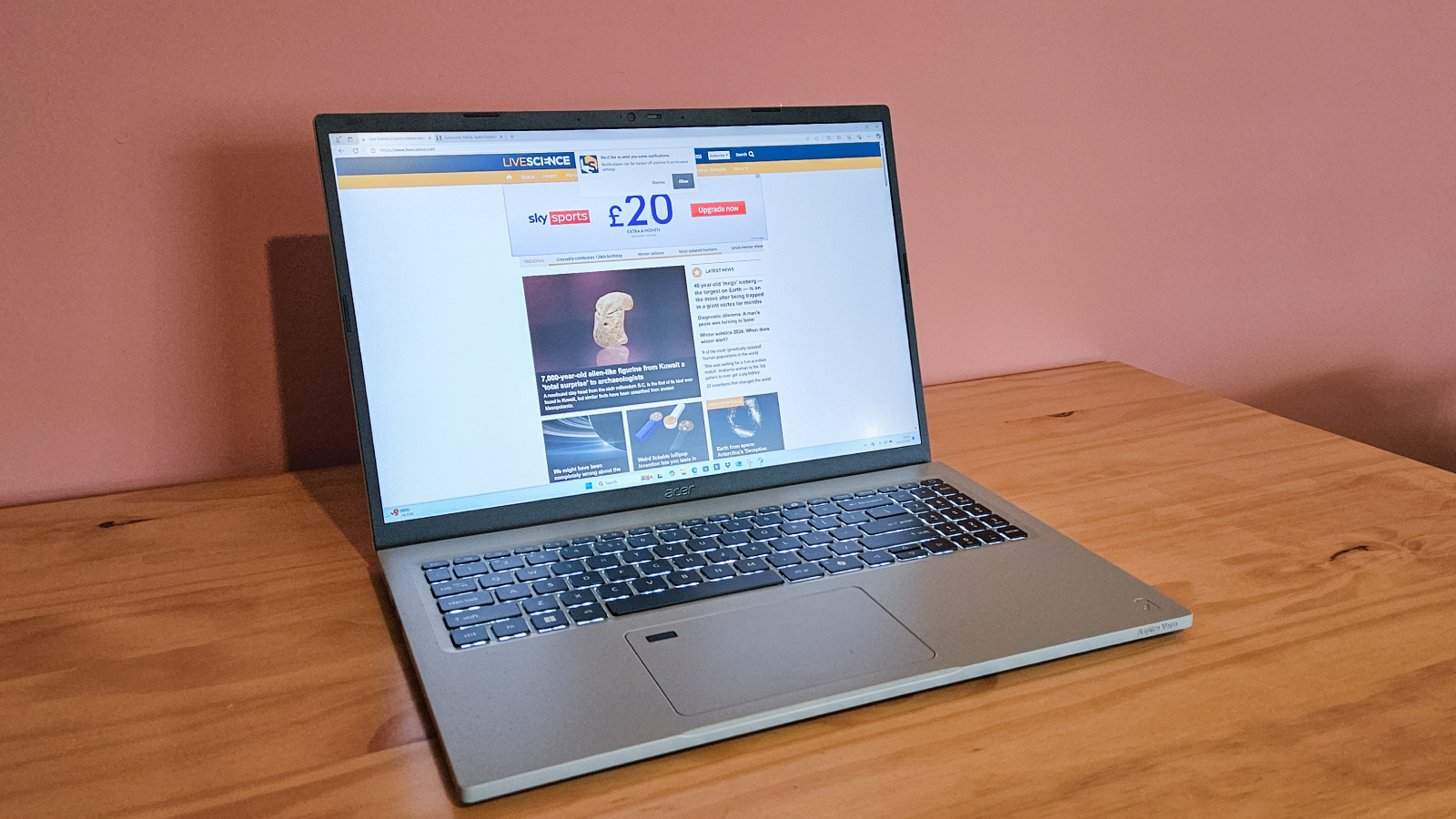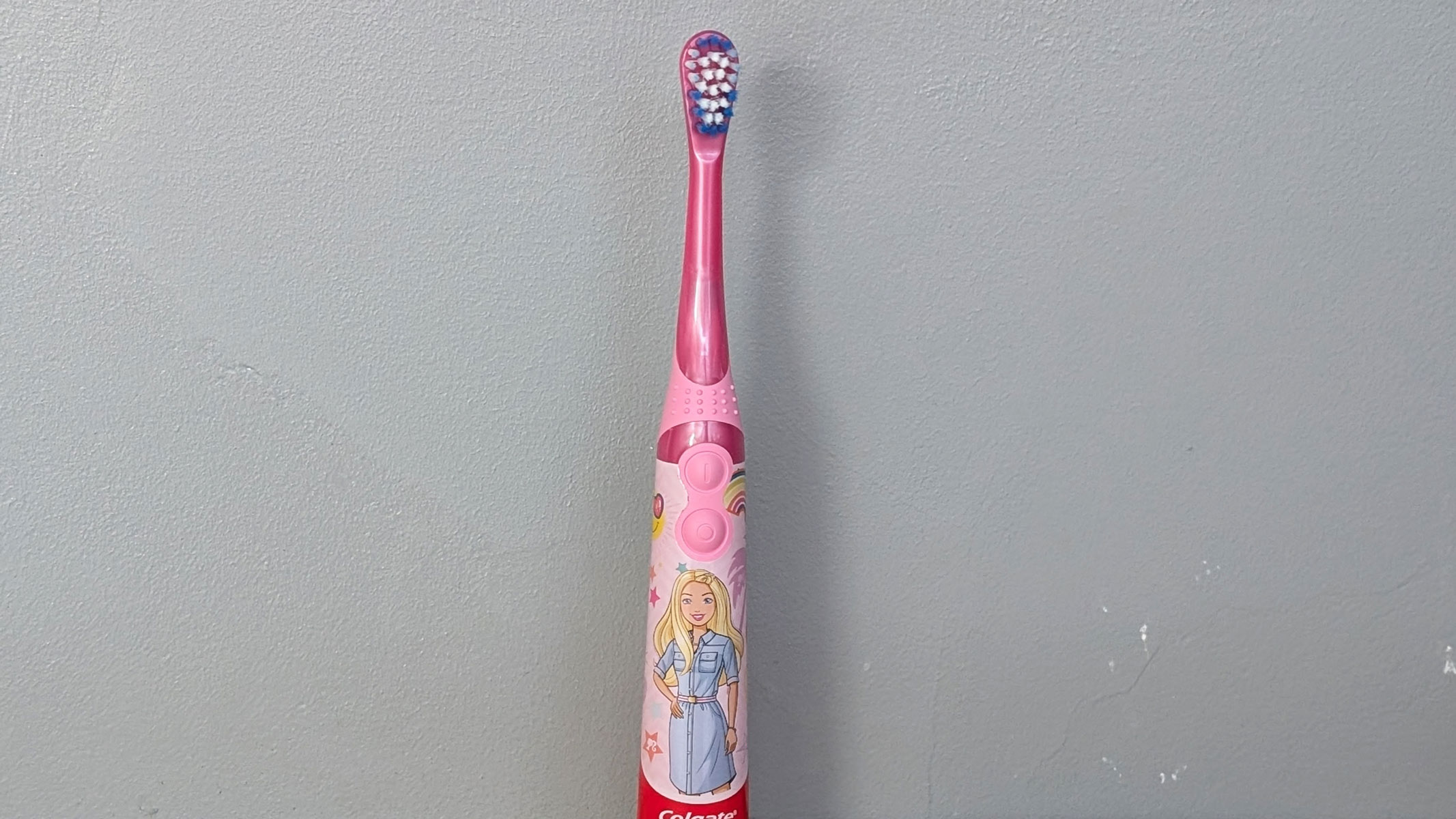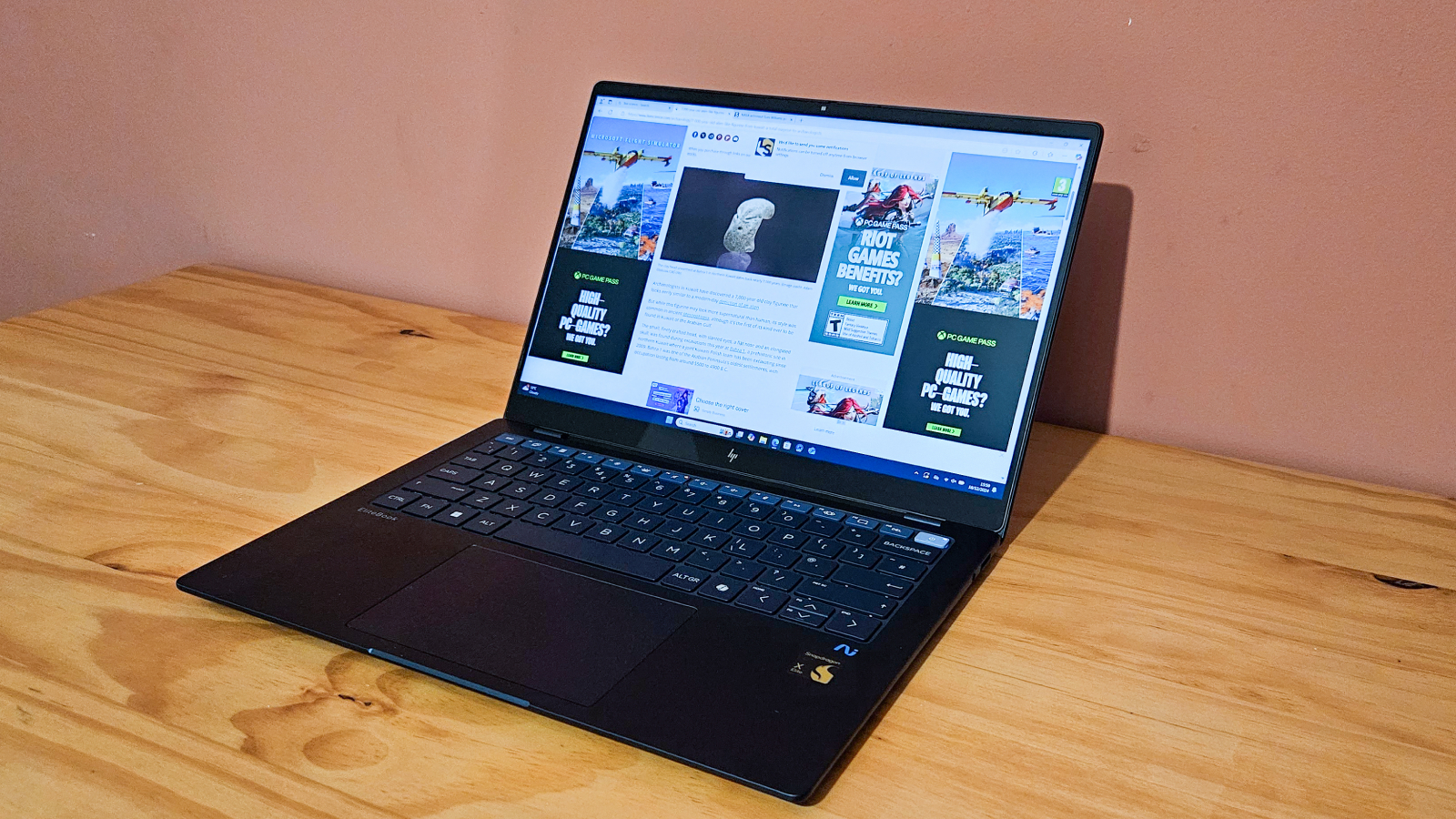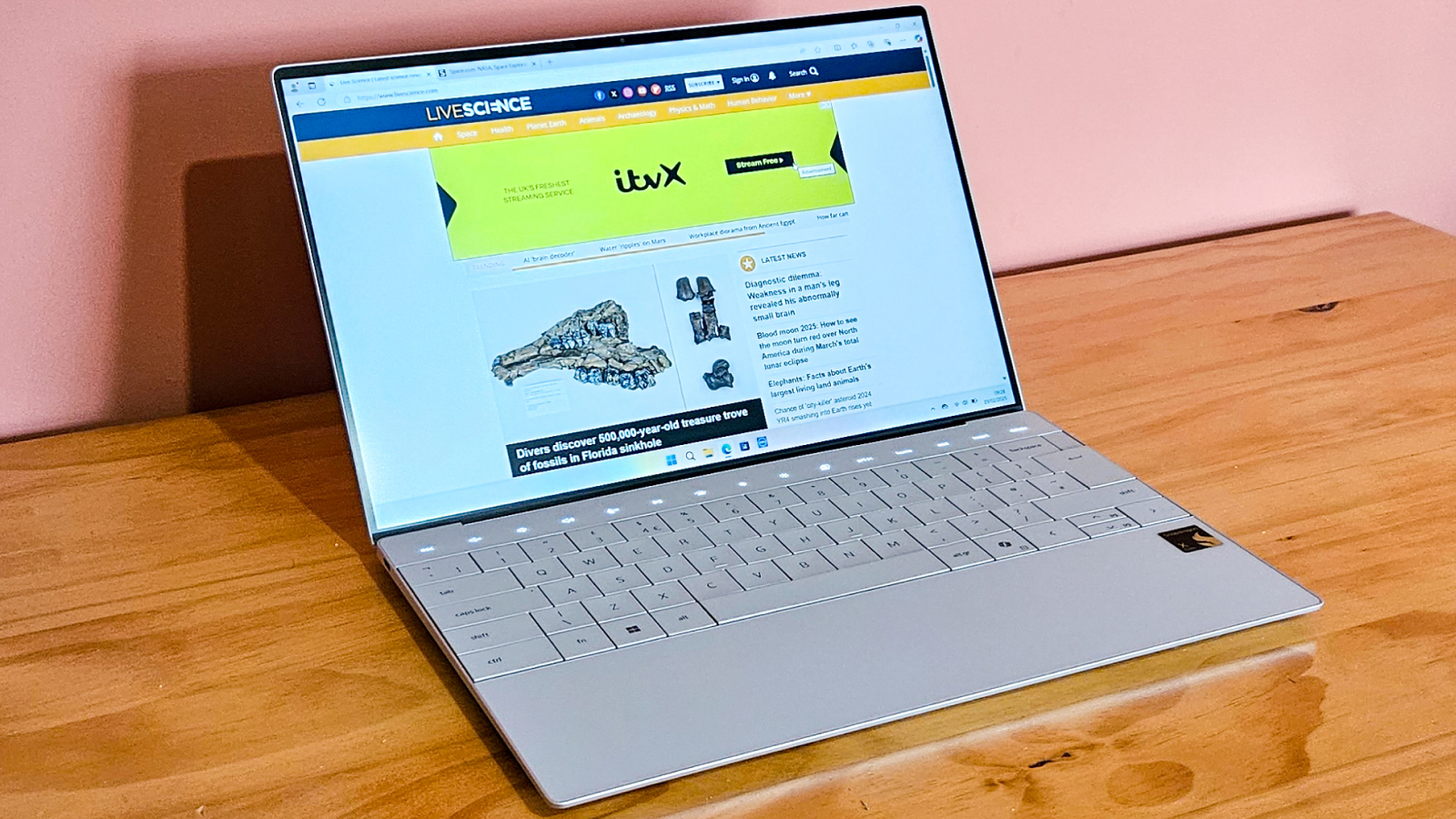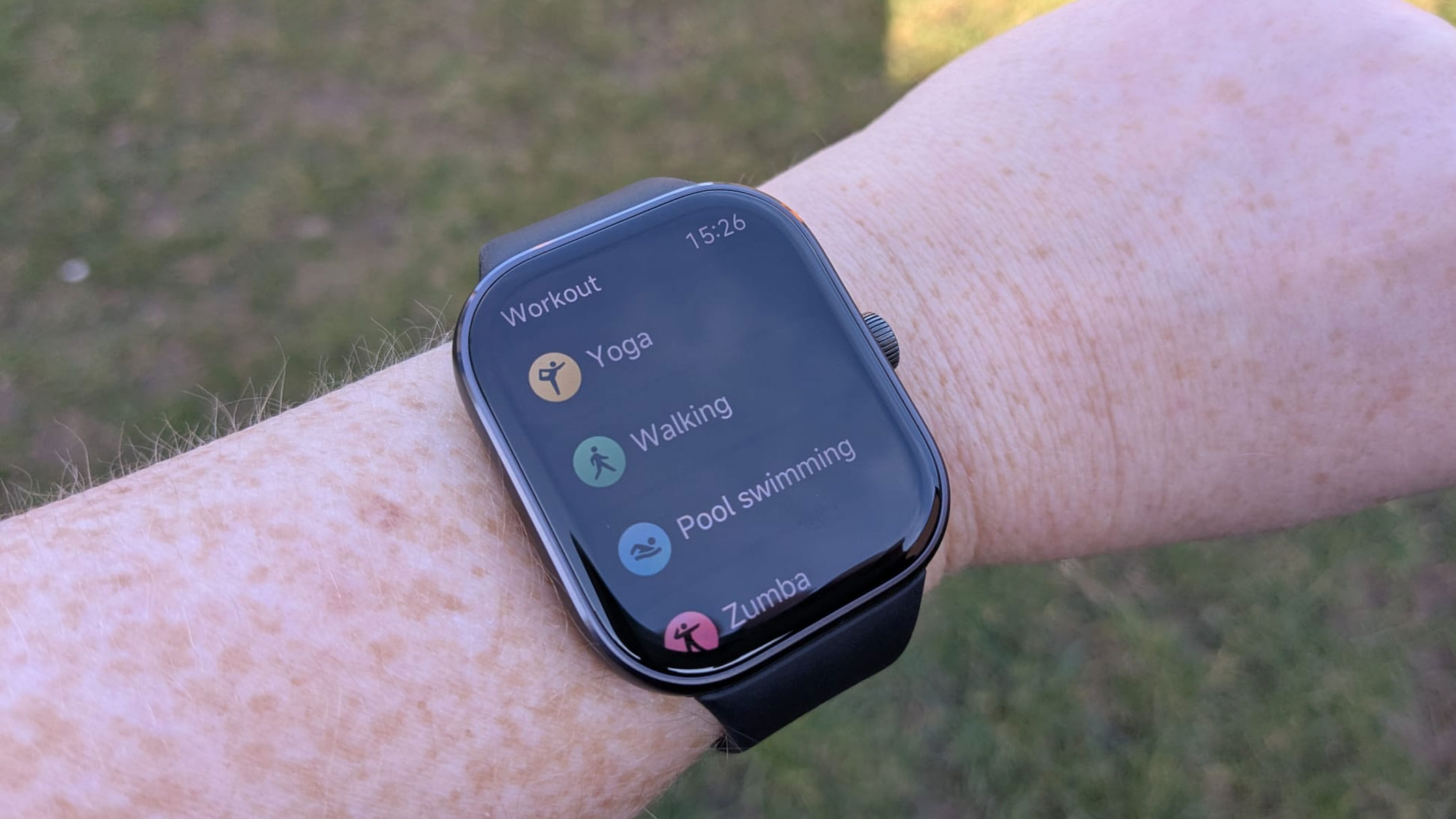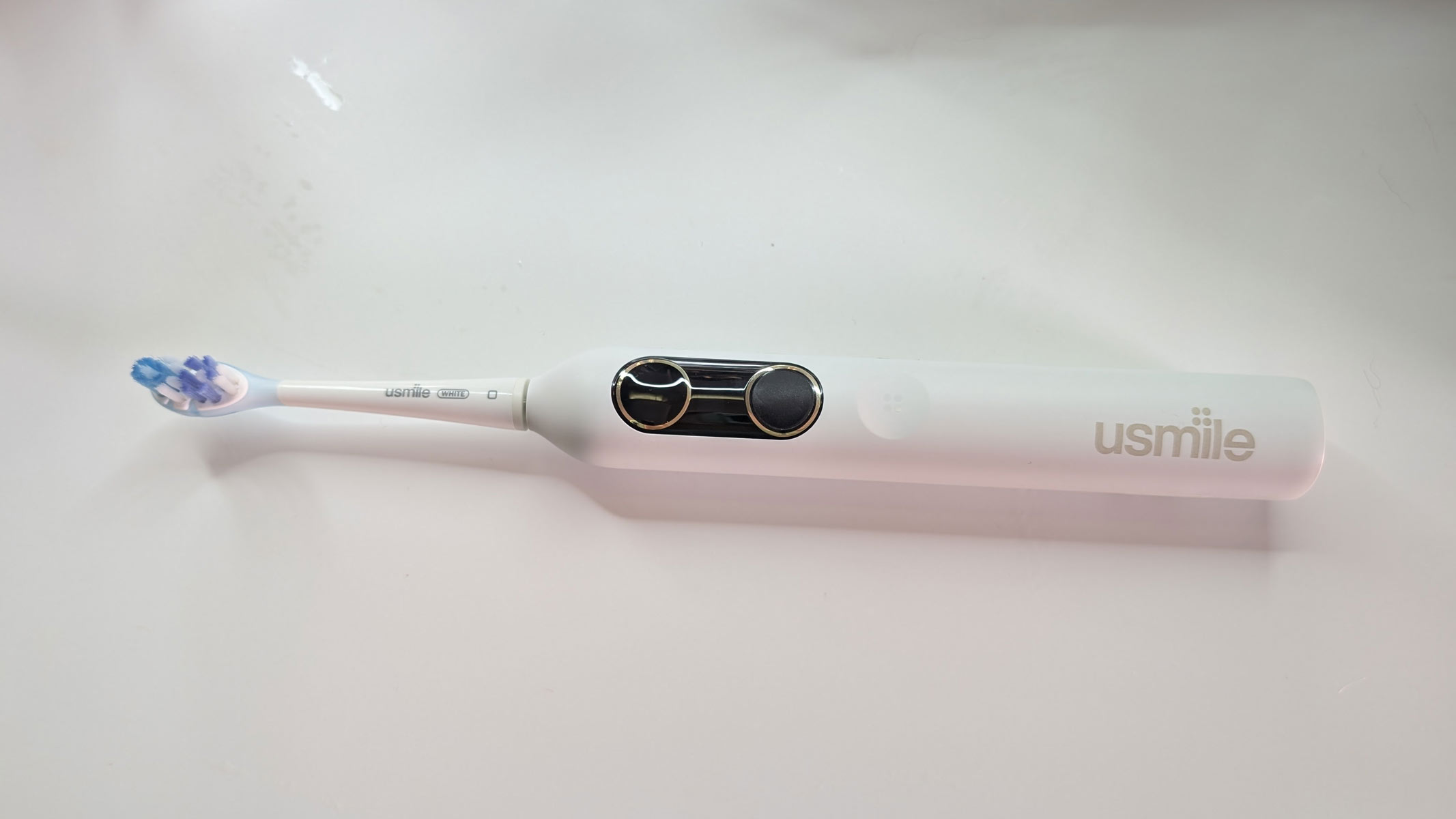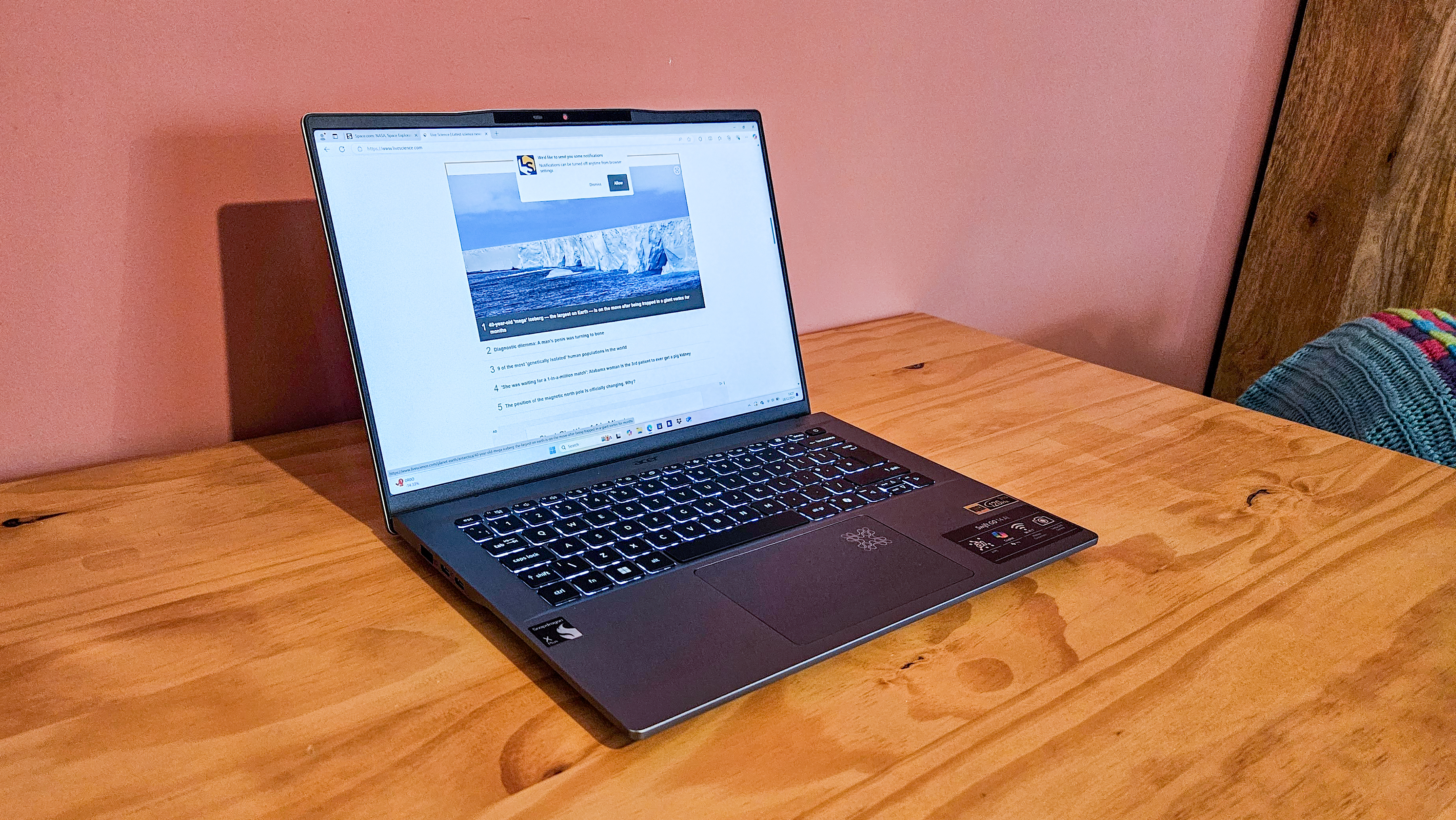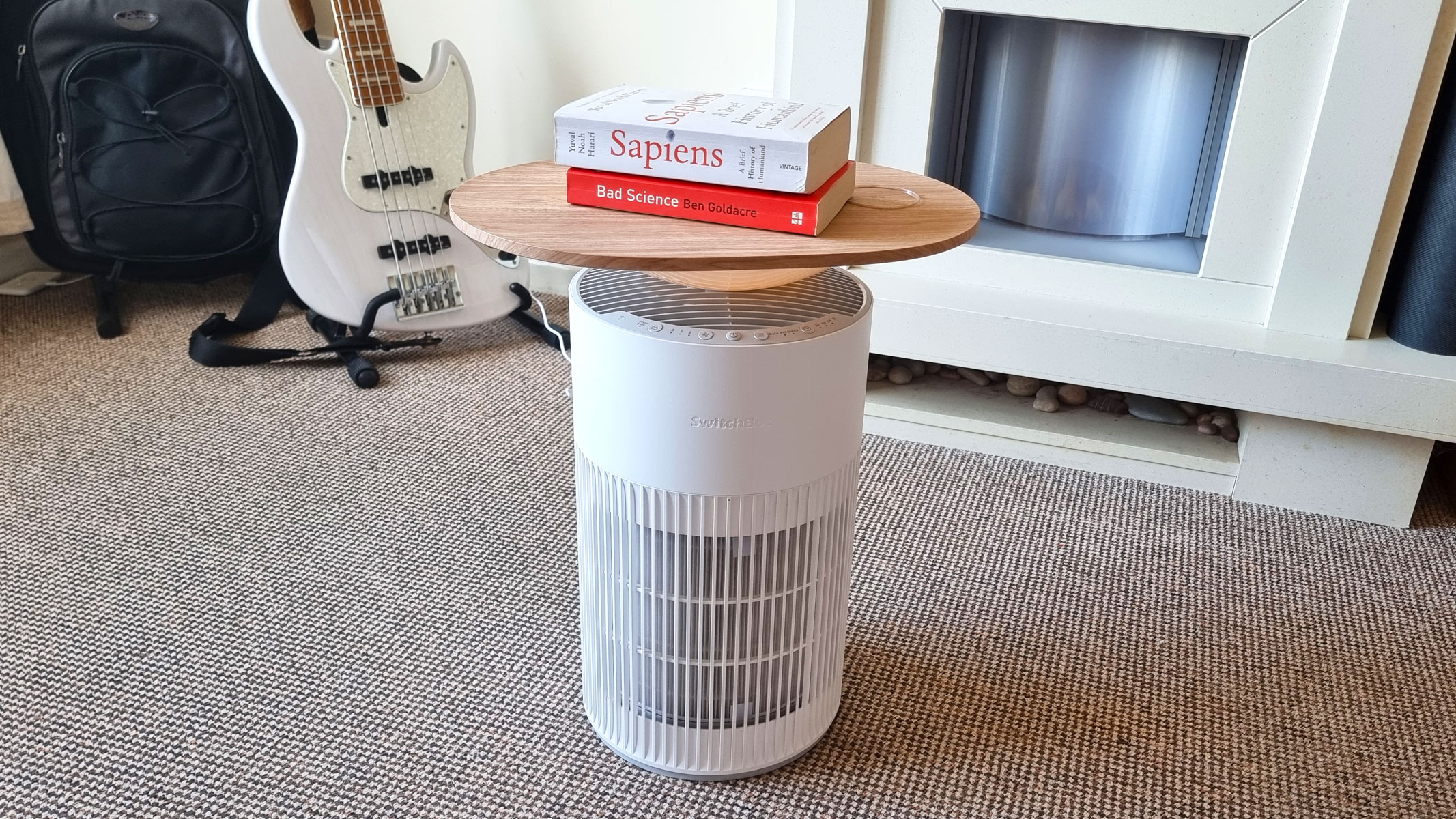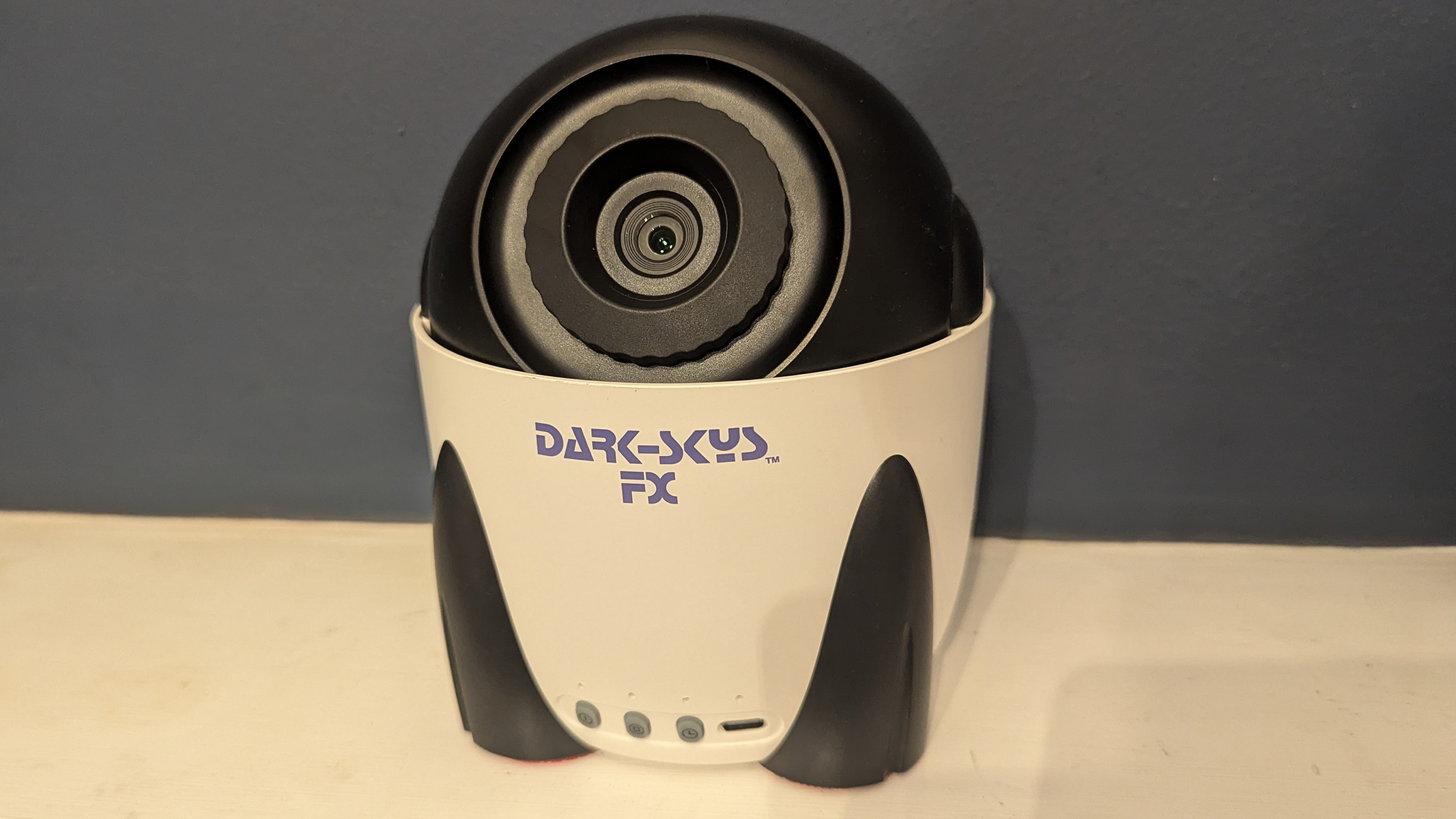Live Science Verdict
A serious tripod for serious photographers, the Benro Mach3 is part of the company's most advanced tripod range yet. Ideal for both indoor and outdoor shoots, it holds its own in tricky weather and terrain and is easy to set up and take down, although it's not the most travel-friendly.
Pros
- +
Strong and sturdy
- +
Can shoot low to the ground
- +
Comfortable twist locks
- +
Good payload
Cons
- -
Fairly bulky — not ideal for frequent travel
- -
No monopod conversion
Why you can trust Live Science
The Benro Mach3 9X CF Series 3 tripod is part of Benro's most advanced tripod range to date, and in this review, we are going to be testing its mettle to see how it holds up against its competitors.
Benro produces some of the most beautiful and exceptionally high-quality tripods on the market, so we were very excited to get our hands on the Mach3. It sits in the higher mid-range of their collection in terms of price, making it ideal for professionals and enthusiasts with a bigger budget. It's adaptable for indoor and outdoor shoots and will suit a number of different photography styles, and it'll more than hold its own with pretty much anything you throw at it.
Sturdy and reliable, it can produce stunning images of the night sky when paired with one of the best astrophotography cameras, and it can get really low to the ground to capture shots of wildlife and nature with one of the best wildlife cameras.
Benro Mach3 tripod review
Benro Mach3: Design
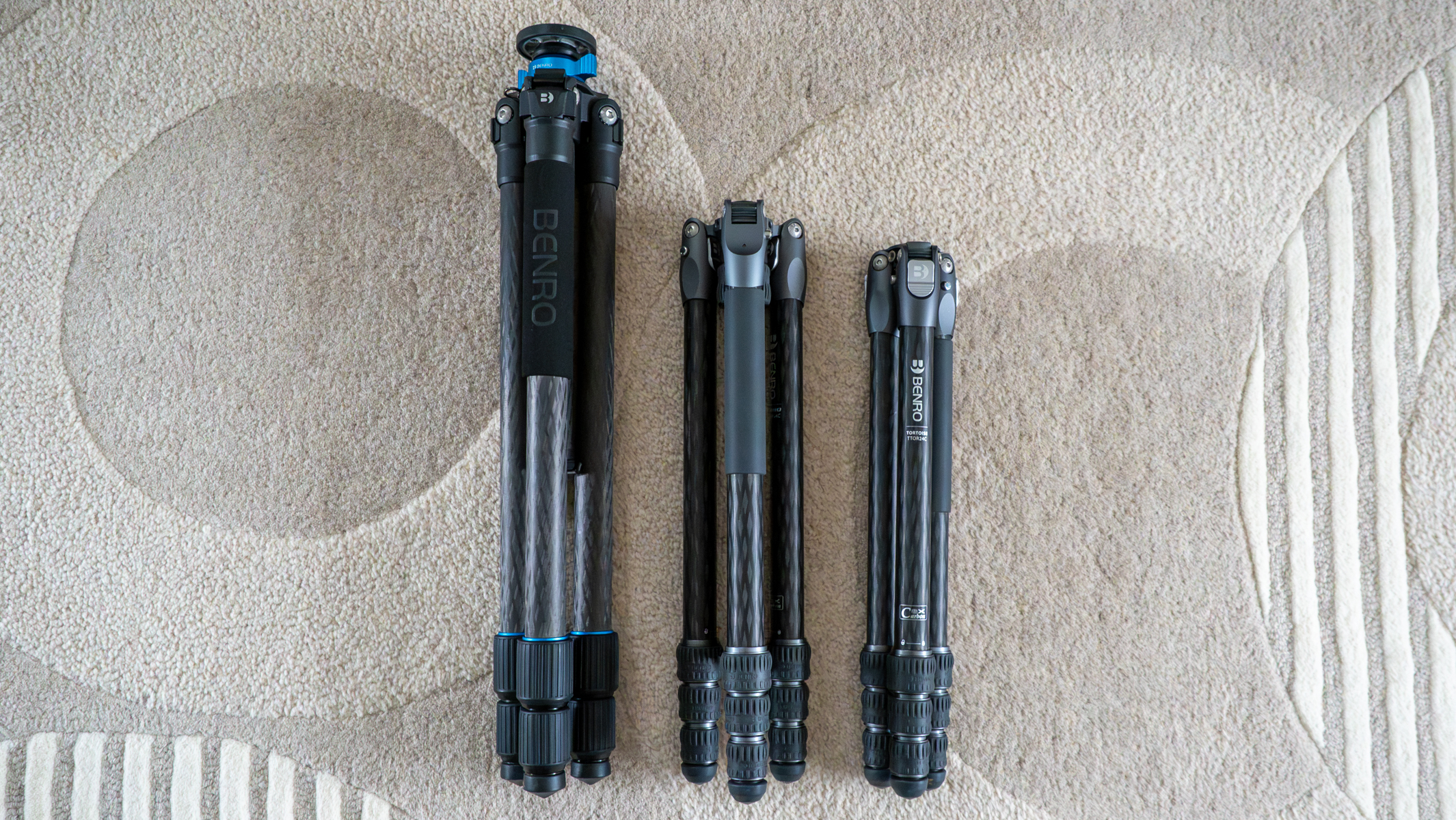
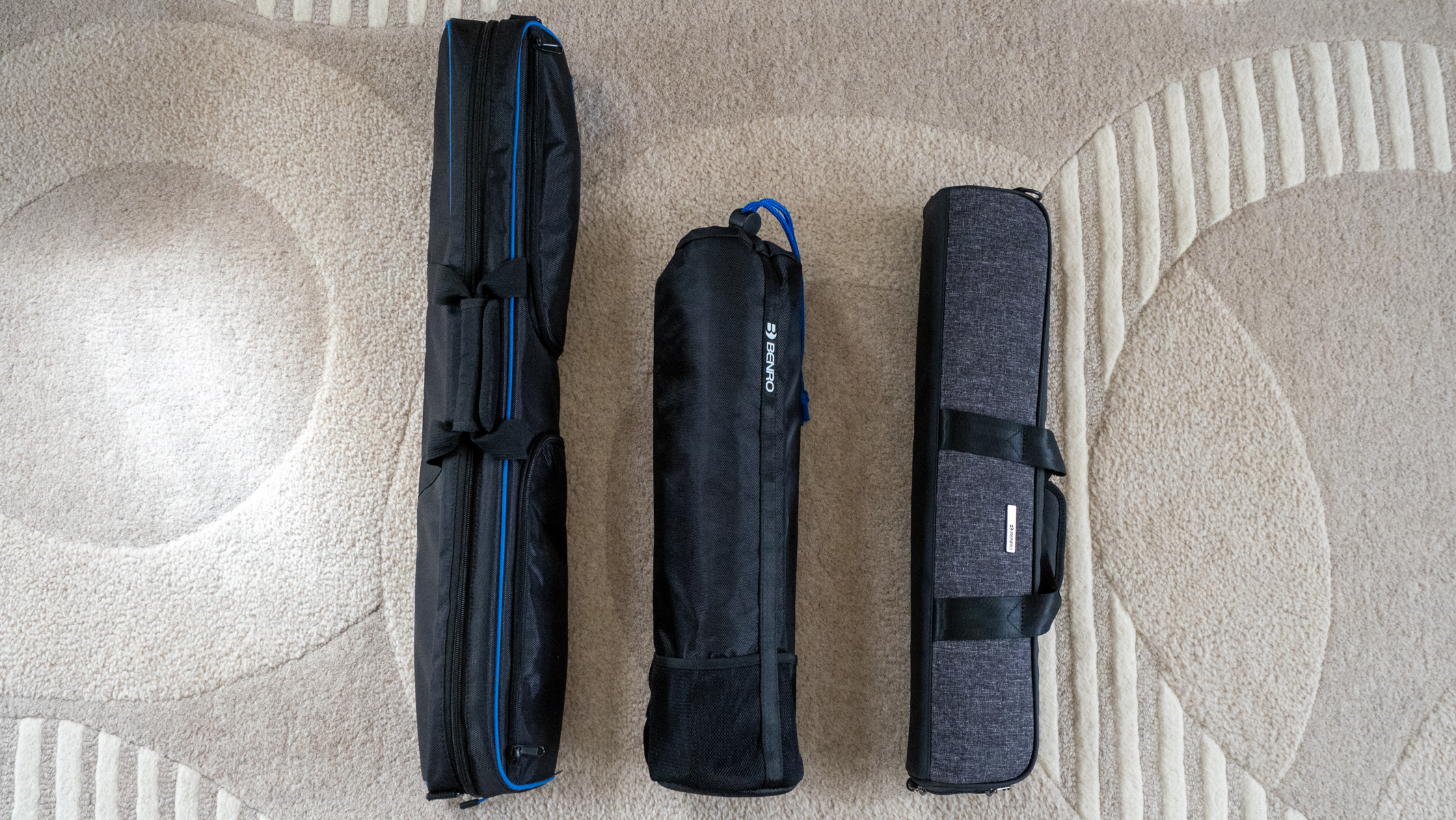
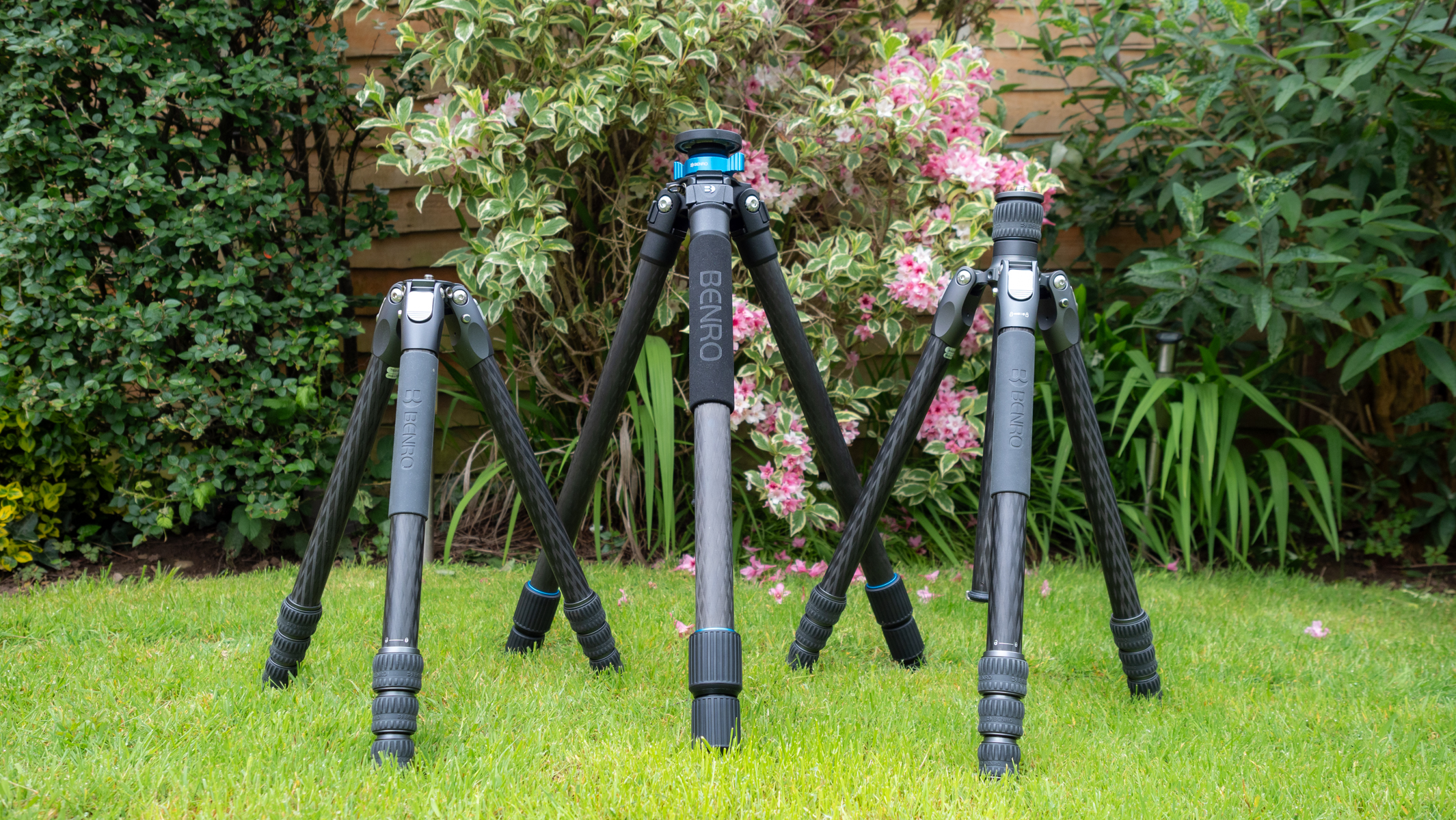
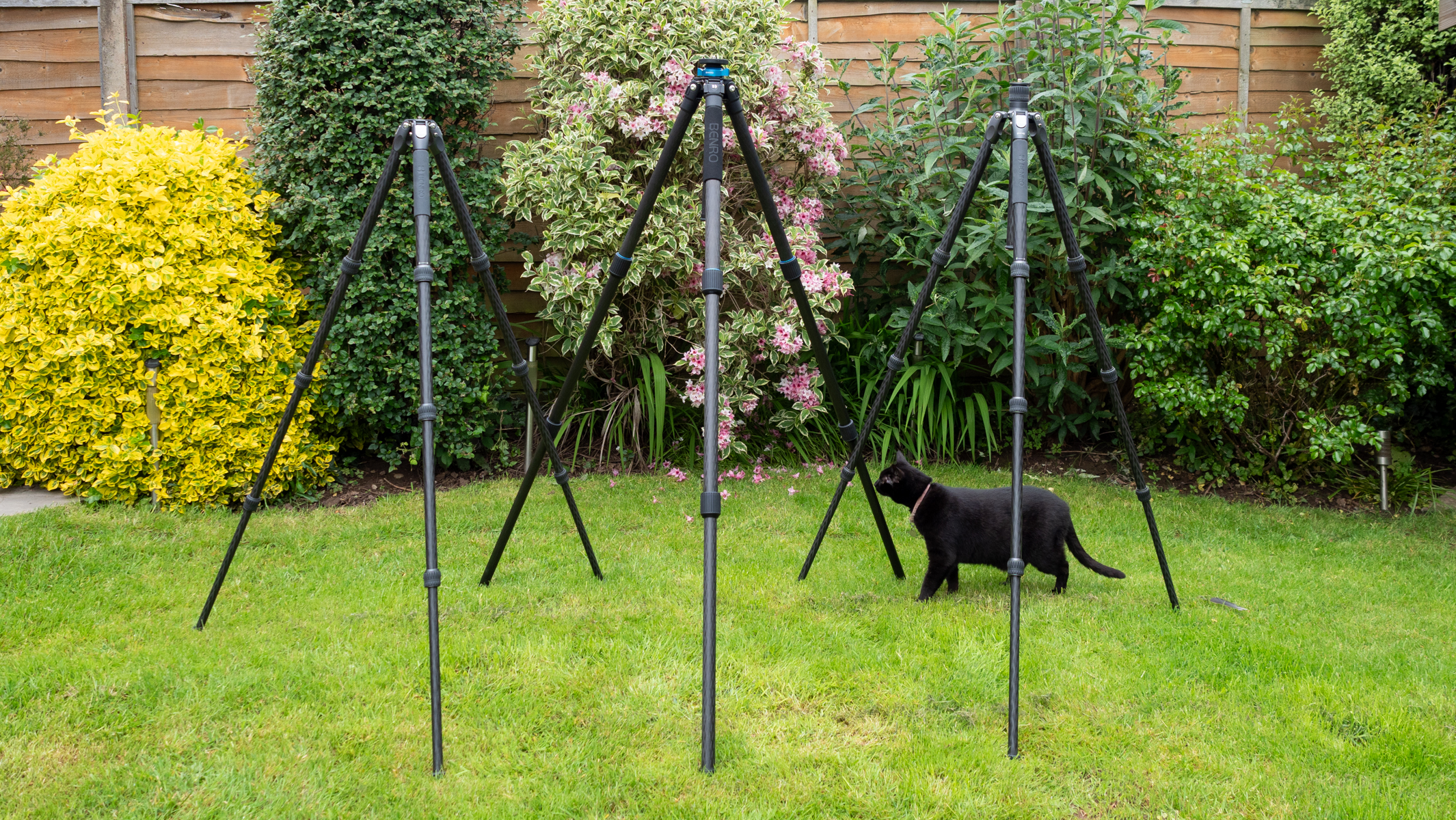
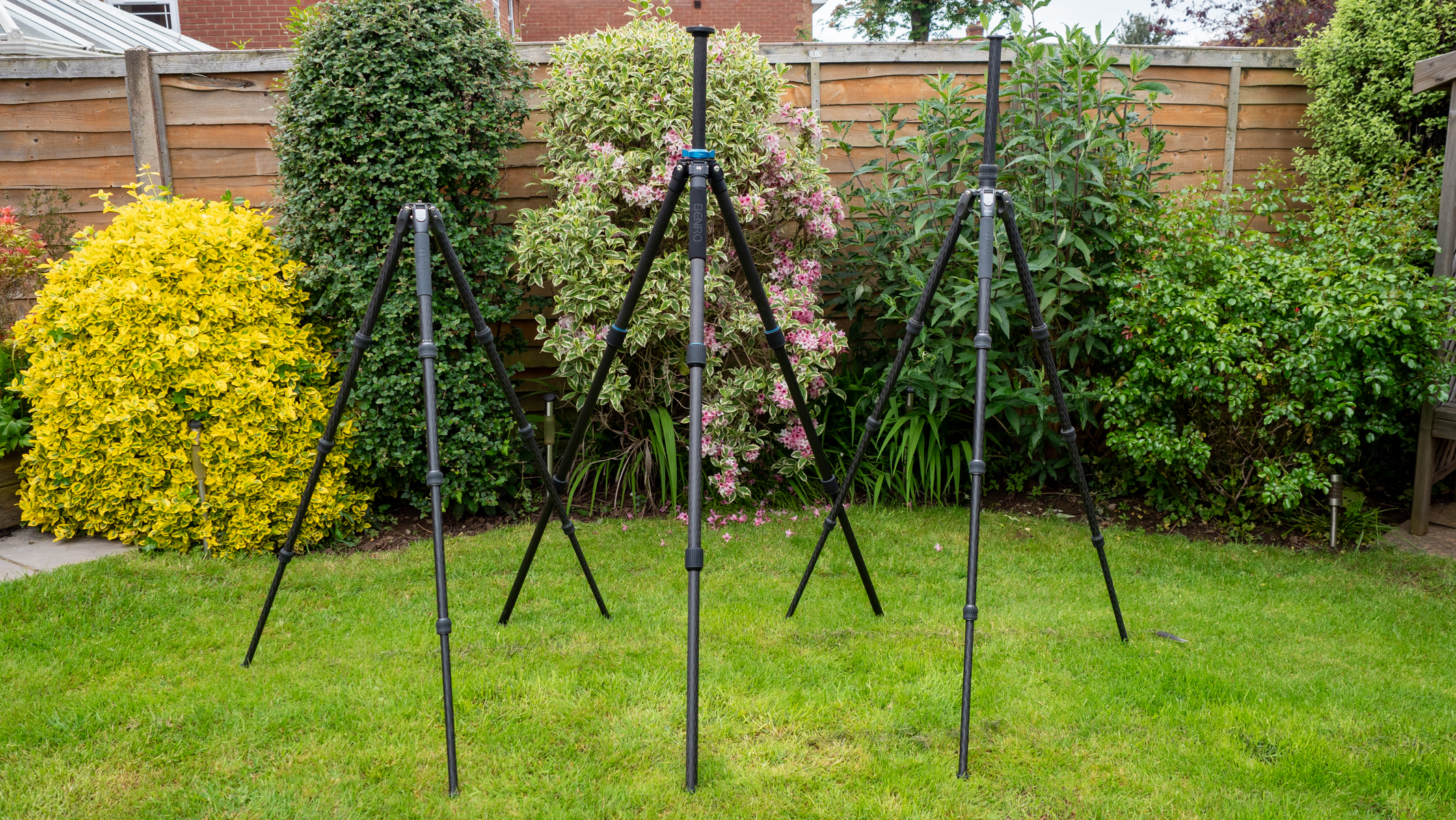
- Fairly large compared to other models
- Quality feel and materials
- Choice of three or four leg sections
Weight: 4.08 lbs (1.85 kg)
Folded length: 24.6 in (62.5 cm)
Maximum height (with central column extended): 63.58 in (161.5 cm)
Payload: 35.3 lbs (16 kg)
Leg sections: Three or four (user-selectable)
Material: Carbon fiber
The first thing we noticed when we unpacked the Benro Mach3 was its size. It's a fair amount bigger than other Benro tripods we've tested — our first thought when we took it out of the packaging was that it looked big. We previously reviewed the Benro Rhino and Benro Tortoise over on our sister site and the Mach3 is substantially larger compared to those two, even without a head attached, as you can see from the images above. It's definitely a tripod for studio photographers and anyone in need of stability and durability.
Not only is the Benro Mach3 pleasing to the eye, but it also feels incredibly luxurious to the touch. The smooth carbon fiber legs are strong and sturdy, the twist leg locks are big and comfortable on the hands and the foam grip is soft enough to carry the tripod for long periods. Put simply, the Mach3 oozes luxury and class, and we think it's one of the finest Benro tripods yet.
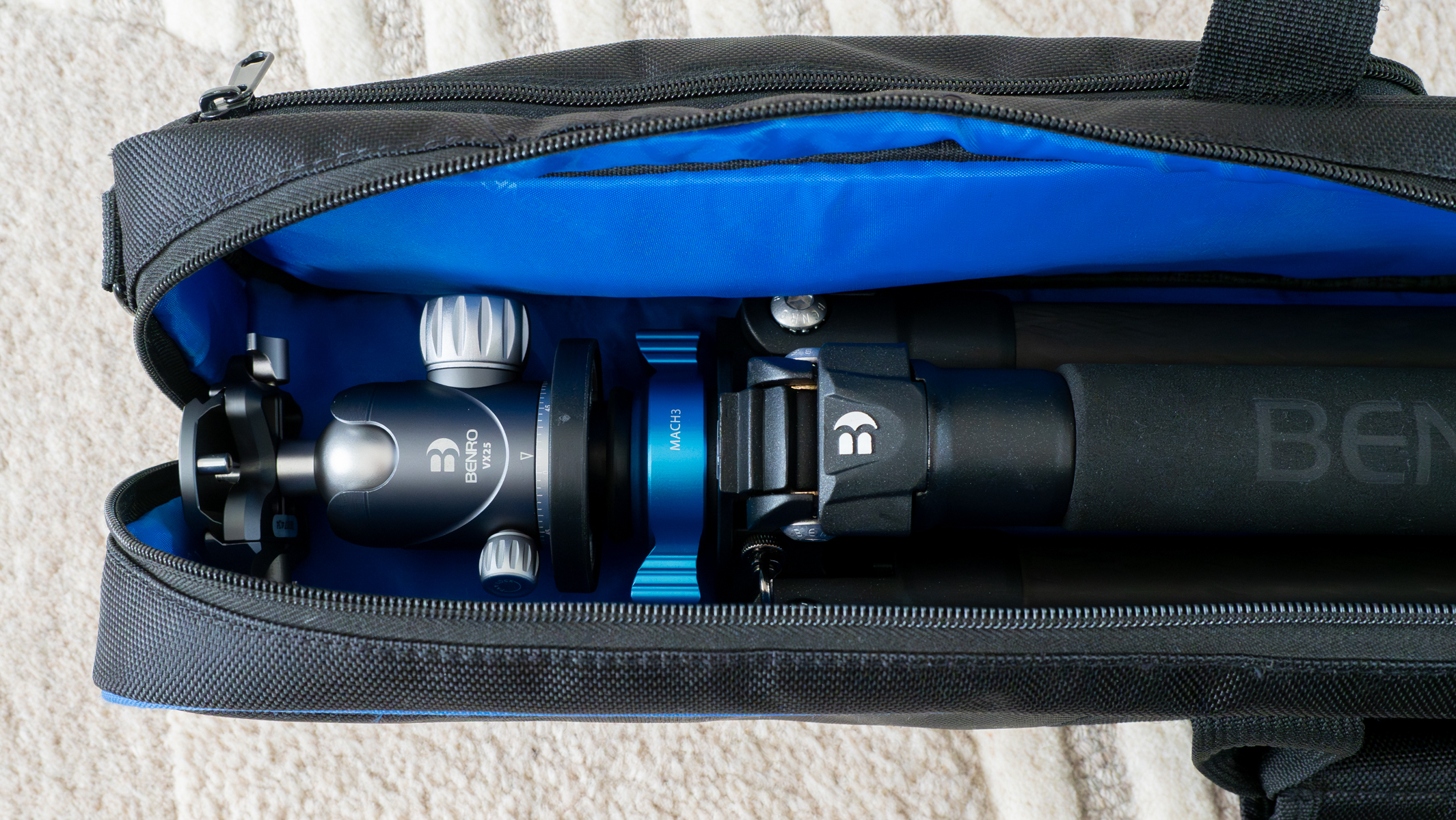
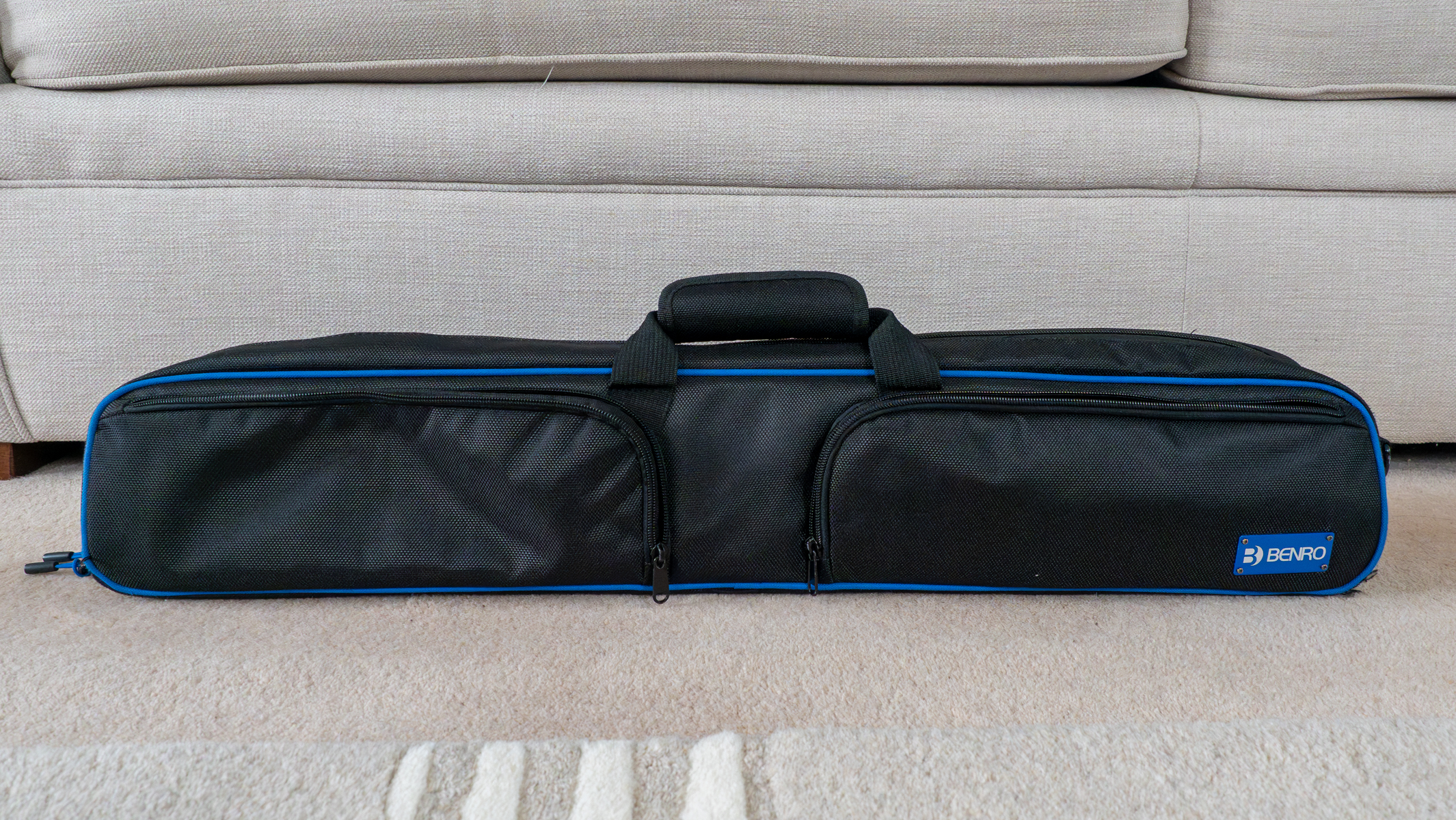
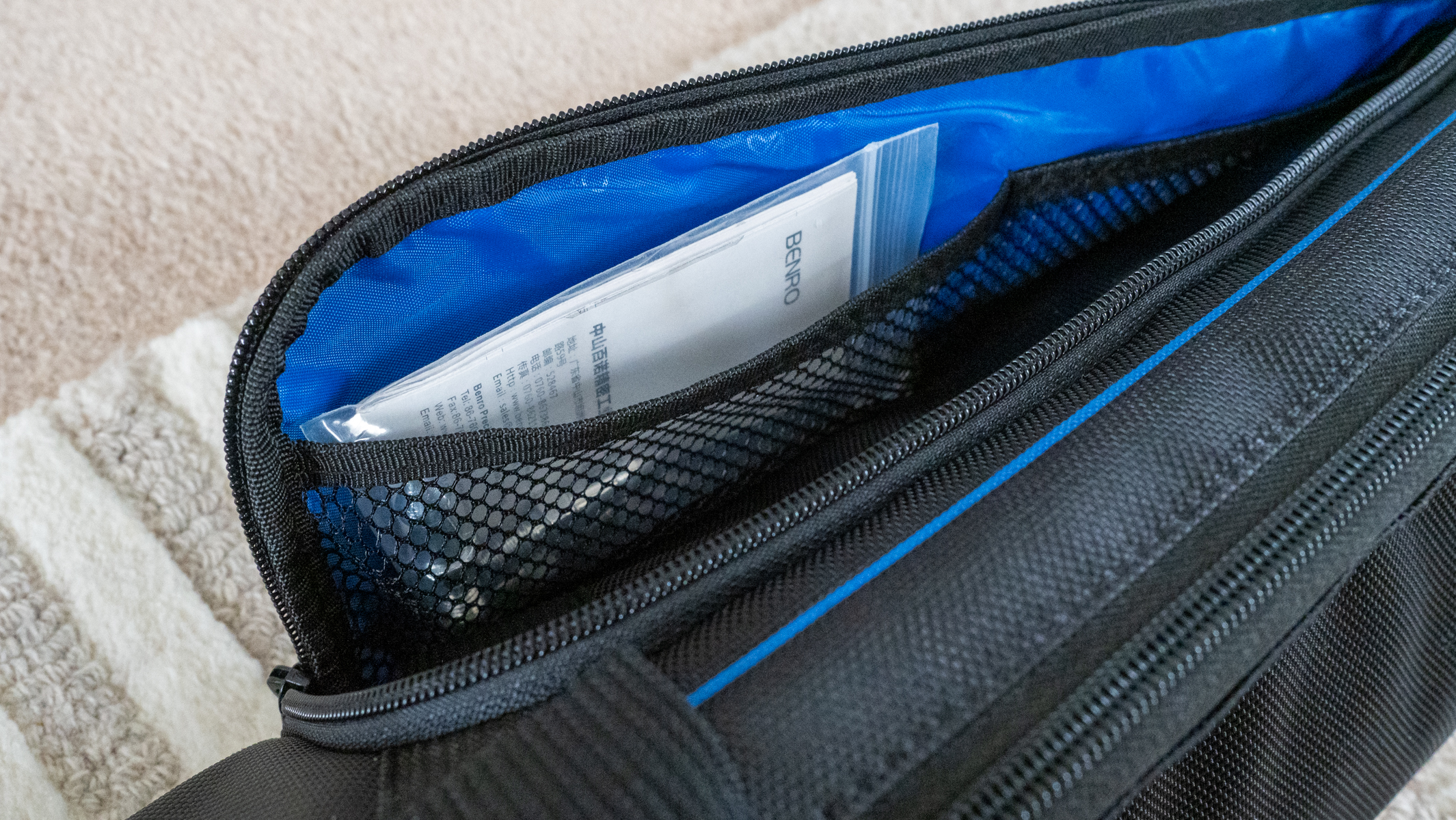
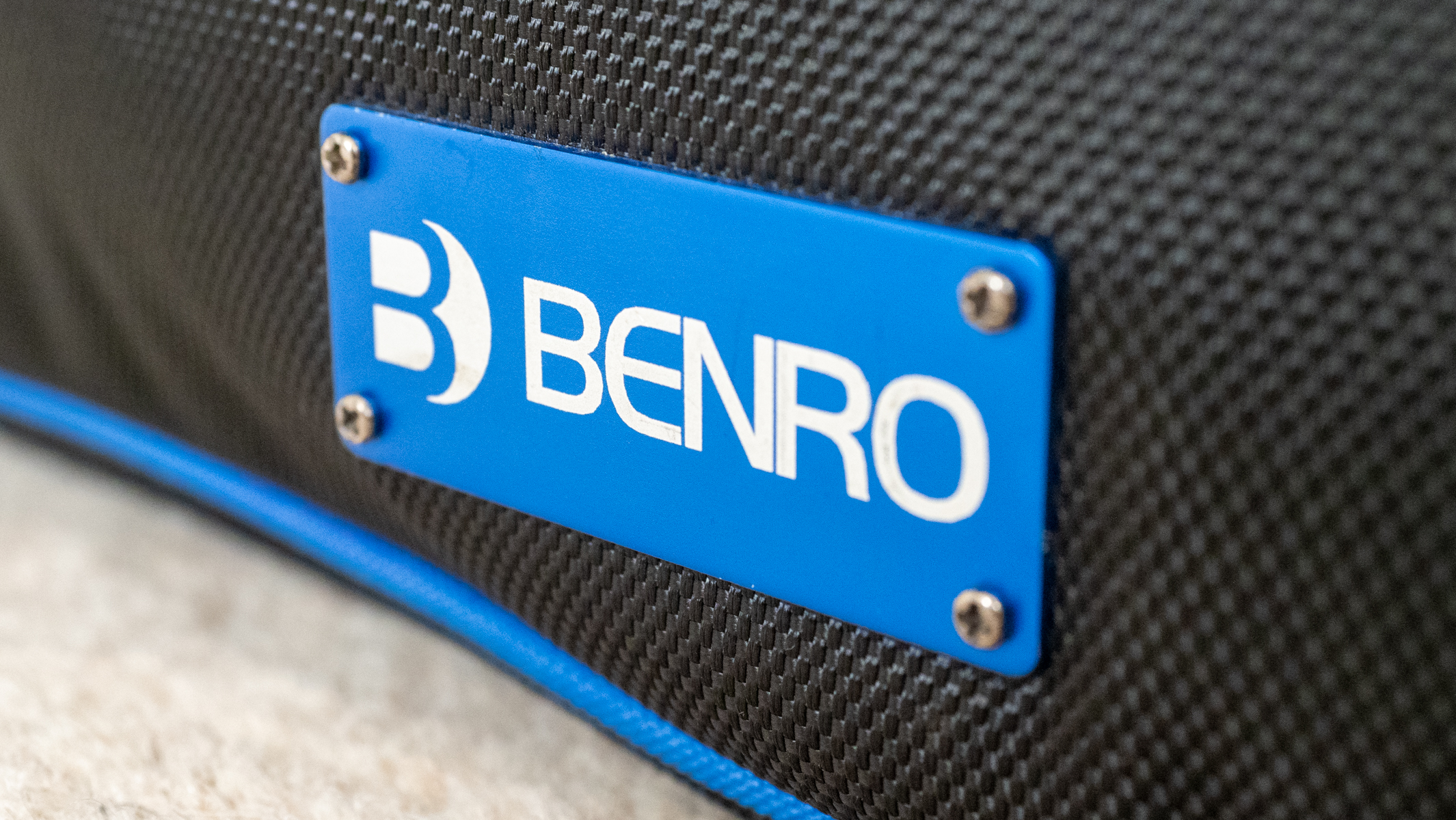
The Mach3 came tucked nicely into a padded carry bag (with pockets!) and included interchangeable spiky feet. You can choose between the three-section leg or a longer four-section. The latter costs $65 more, and is 15.5cm taller when fully extended, a few centimeters longer when folded and 200g heavier. For this review, we tested the three-section legs.
Benro Mach3: Performance
- Strong and sturdy in windy weather
- Quick and easy to put up and take down — even in the dark
- Good 35.3 lbs (16 kg) payload capacity
In order to test its sturdiness, we put it at full height in our garden in winds of 15 mph with gusts of 33 mph — not exactly storm levels but still pretty windy. Although we were fairly confident it wouldn't tip over, we didn't want to take any chances by putting an actual camera on it, so we put a 1.5 kg dumbbell in a bag and hung it from the counterweight hook. The weighted bag was swinging a fair amount from the wind, but the tripod itself didn't budge.
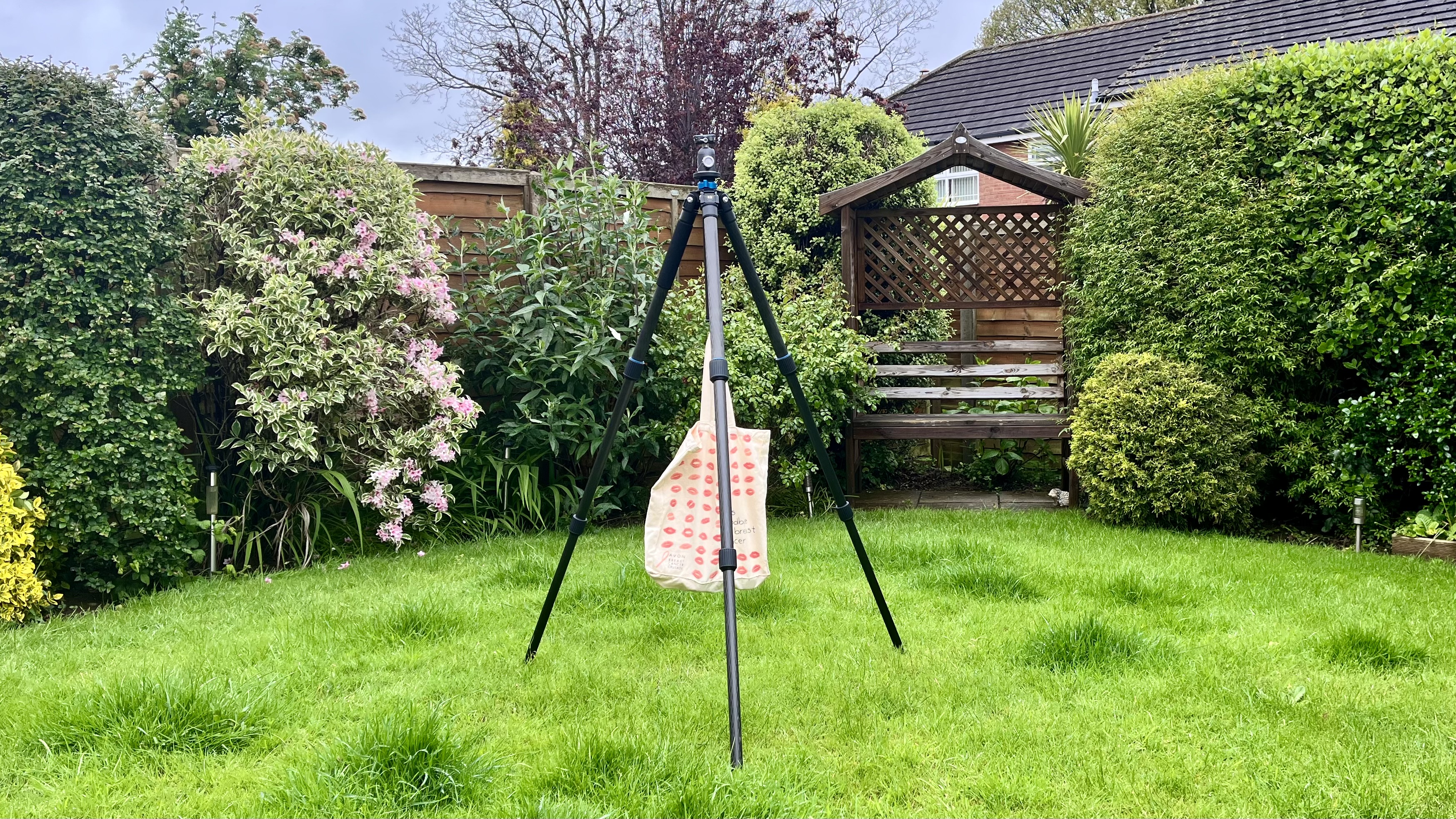
The Mach3 has a generous 35.3 lbs / 16 kg payload capacity which is more than enough for most photographers, and will even suit more professional camera setups. We noticed that the legs were a lot thicker than other Benro models we've reviewed, which helps with stability at higher payloads — typically, the lower leg sections tend to be very thin and can cause the tripod to dip slightly when fully extended.
We also found it effortless to put up and take down, even in the dark, making it great for astrophotography. It doesn't have a reverse folding design like the Rhino does, so you just need to separate the legs, twist the locks to extend them and away you go.
We also liked that the bubble level was on the tripod itself — one issue we found with the bubble level being on the tripod head is that the camera tends to cover it once it's attached.
Benro Mach3: Functionality
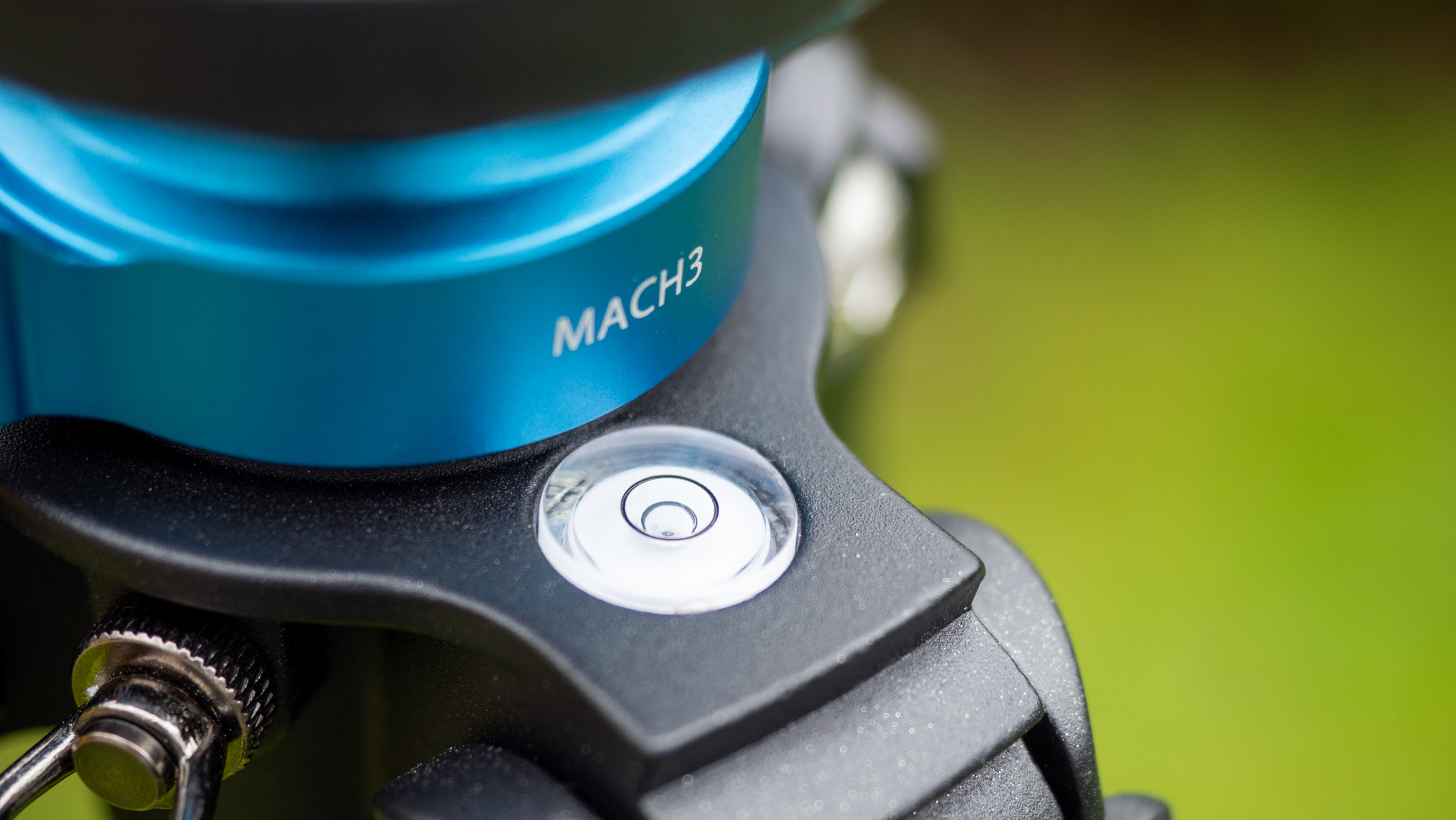
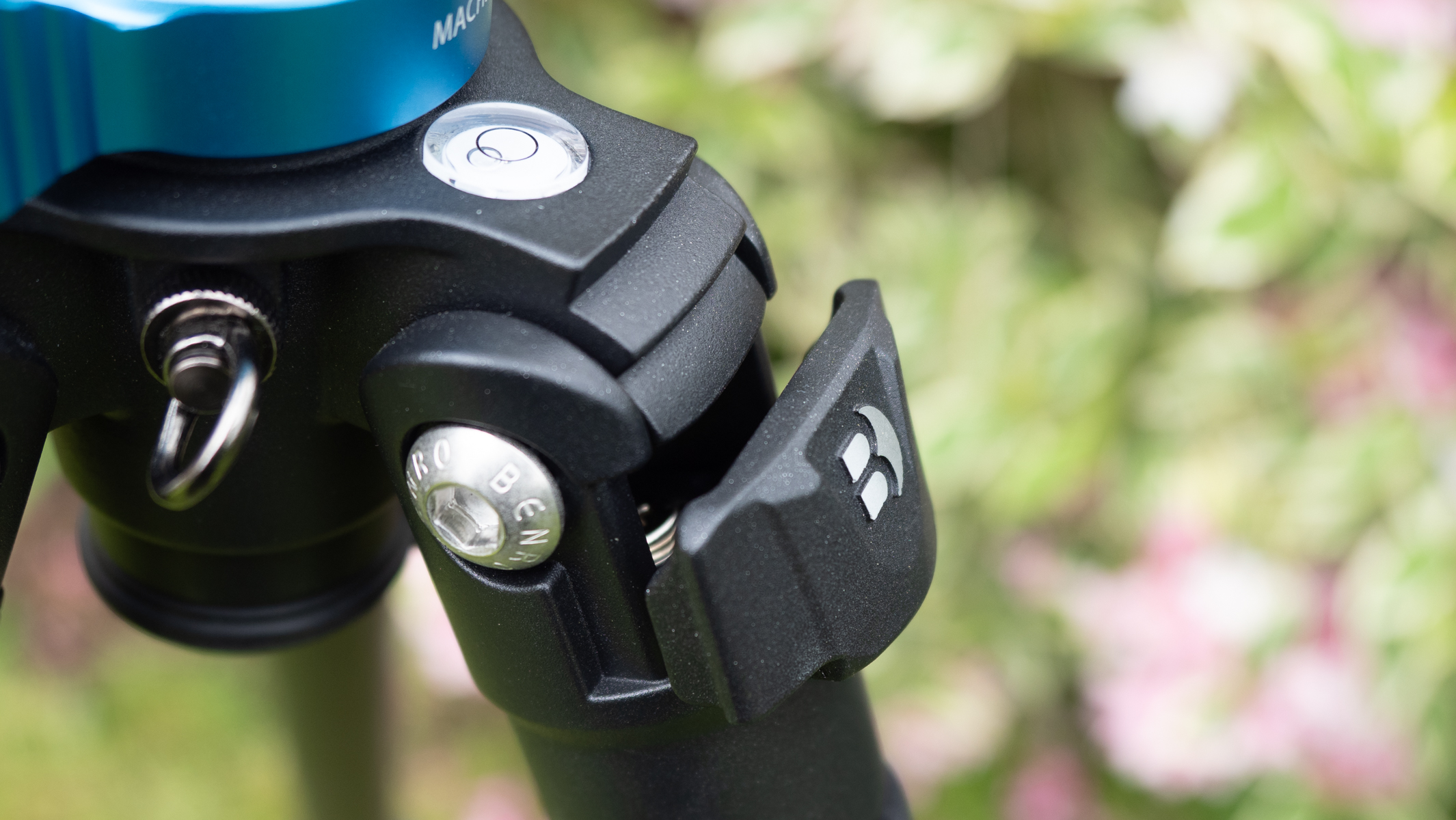
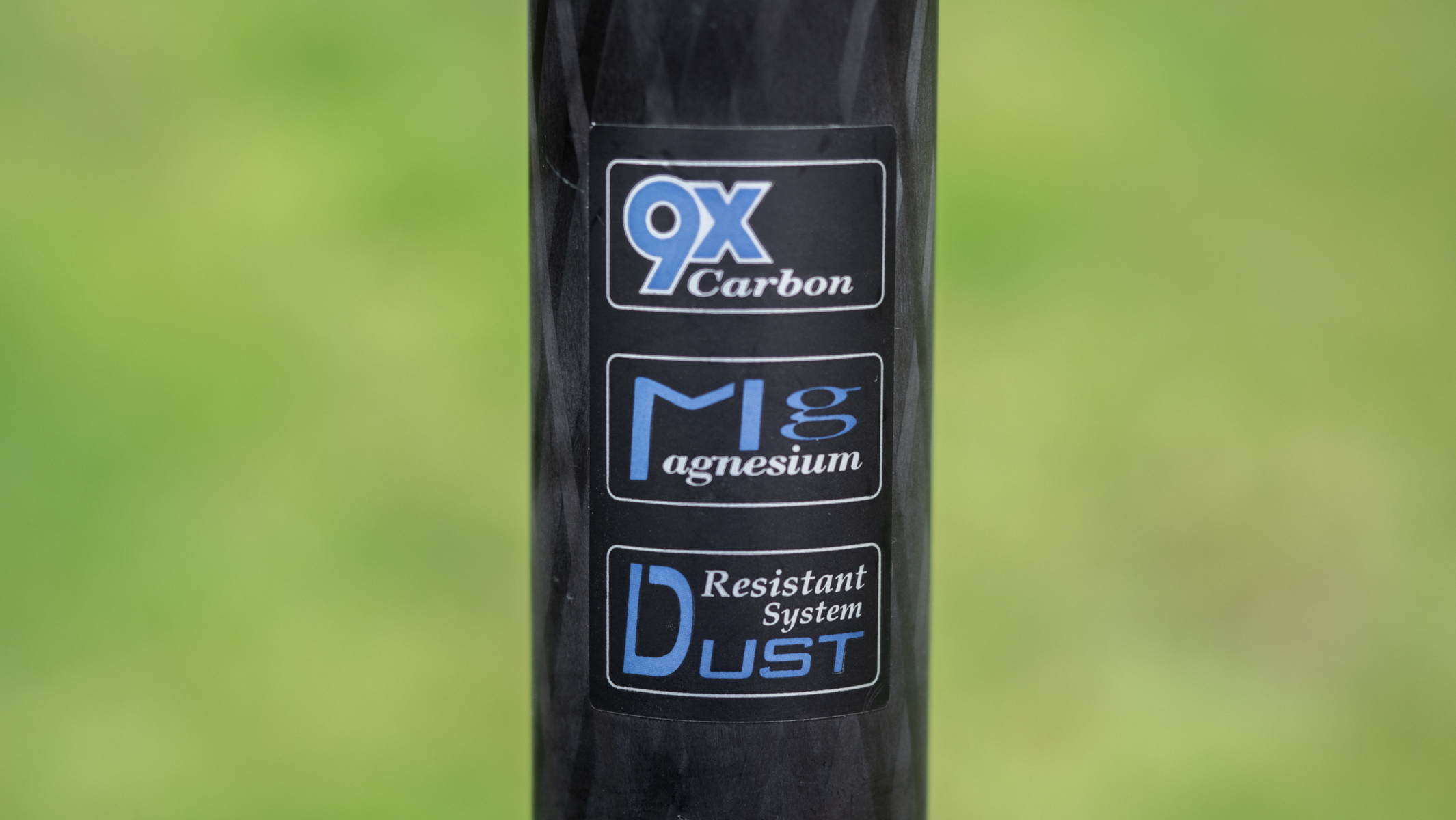
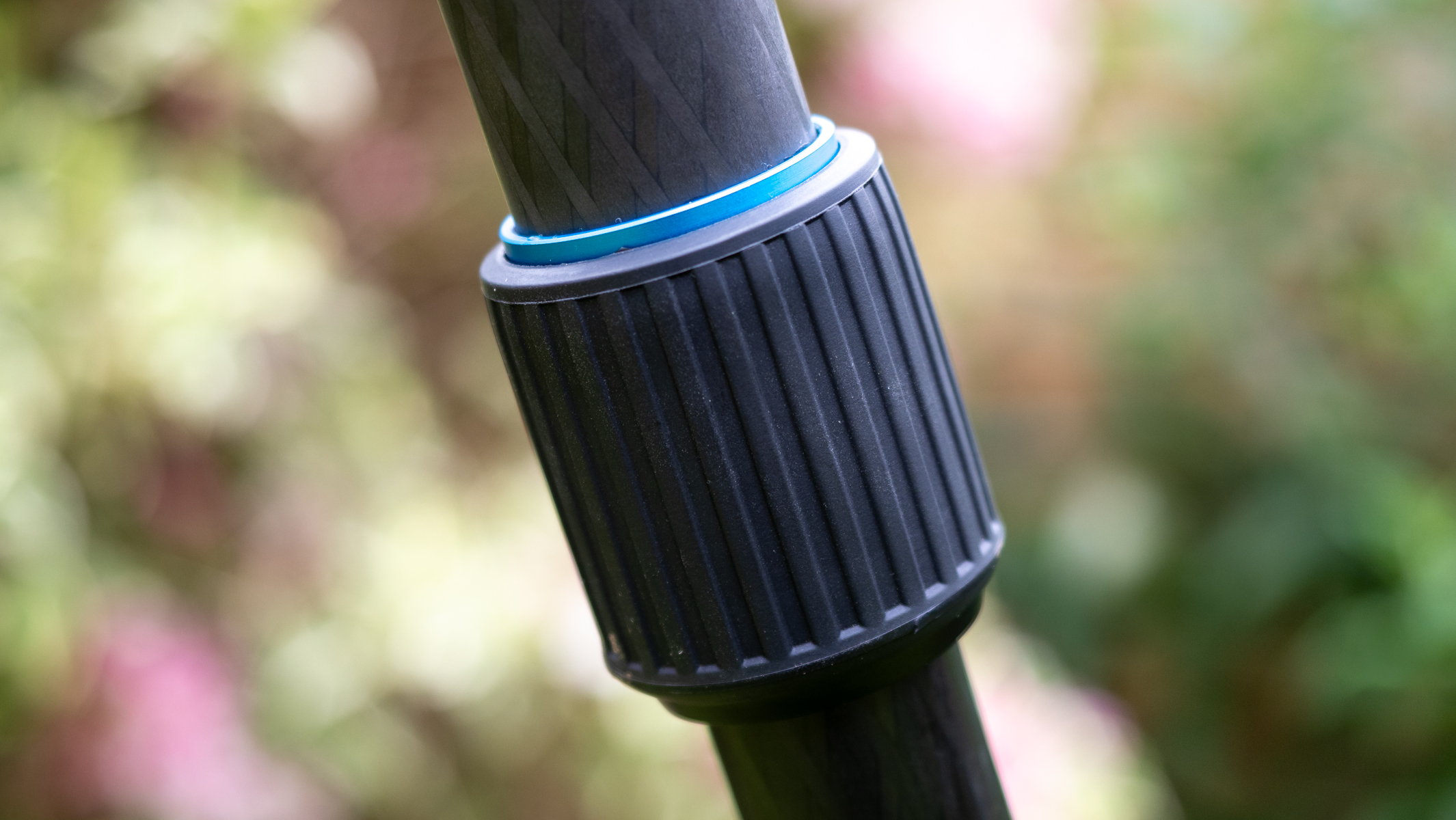
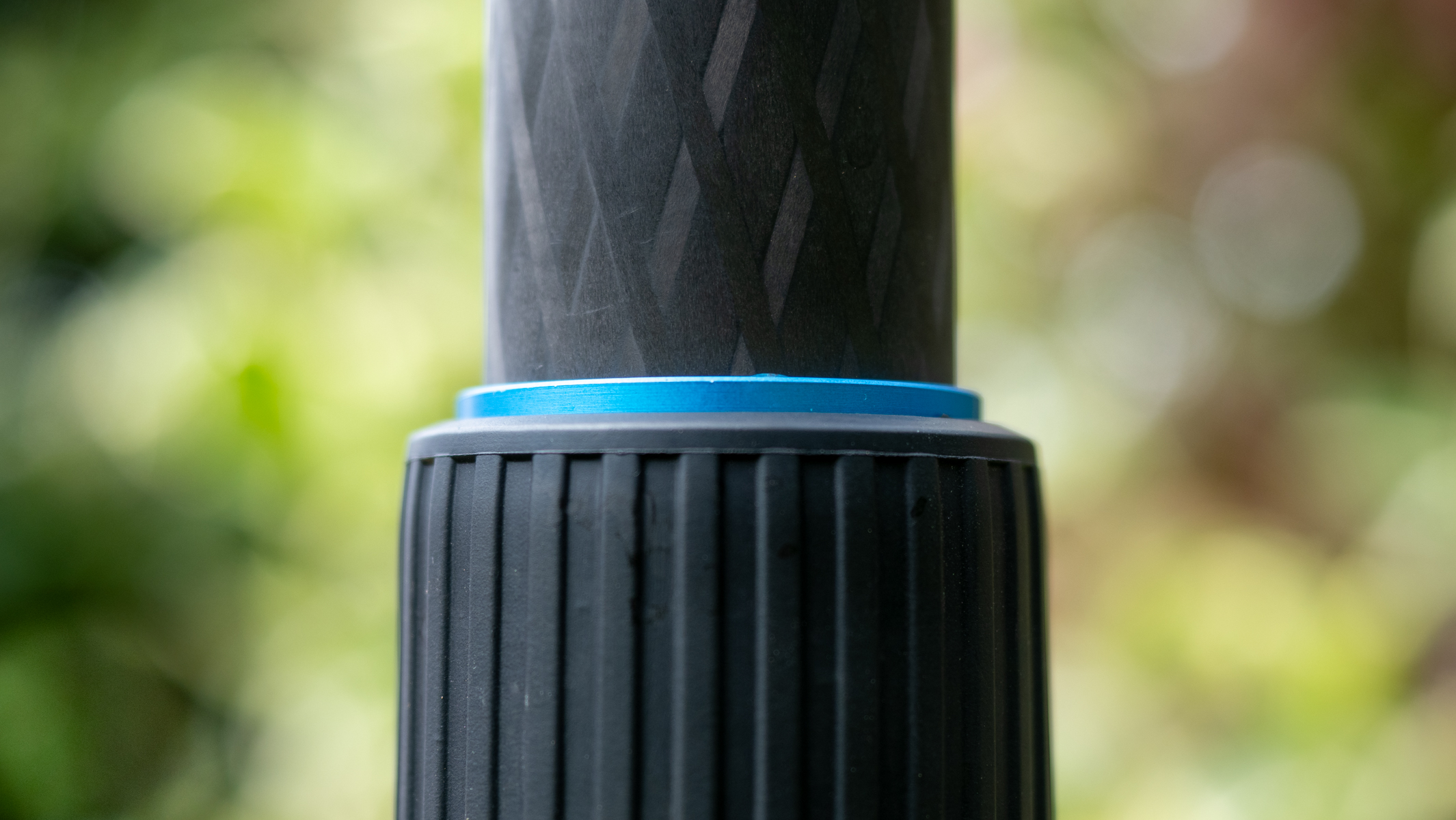
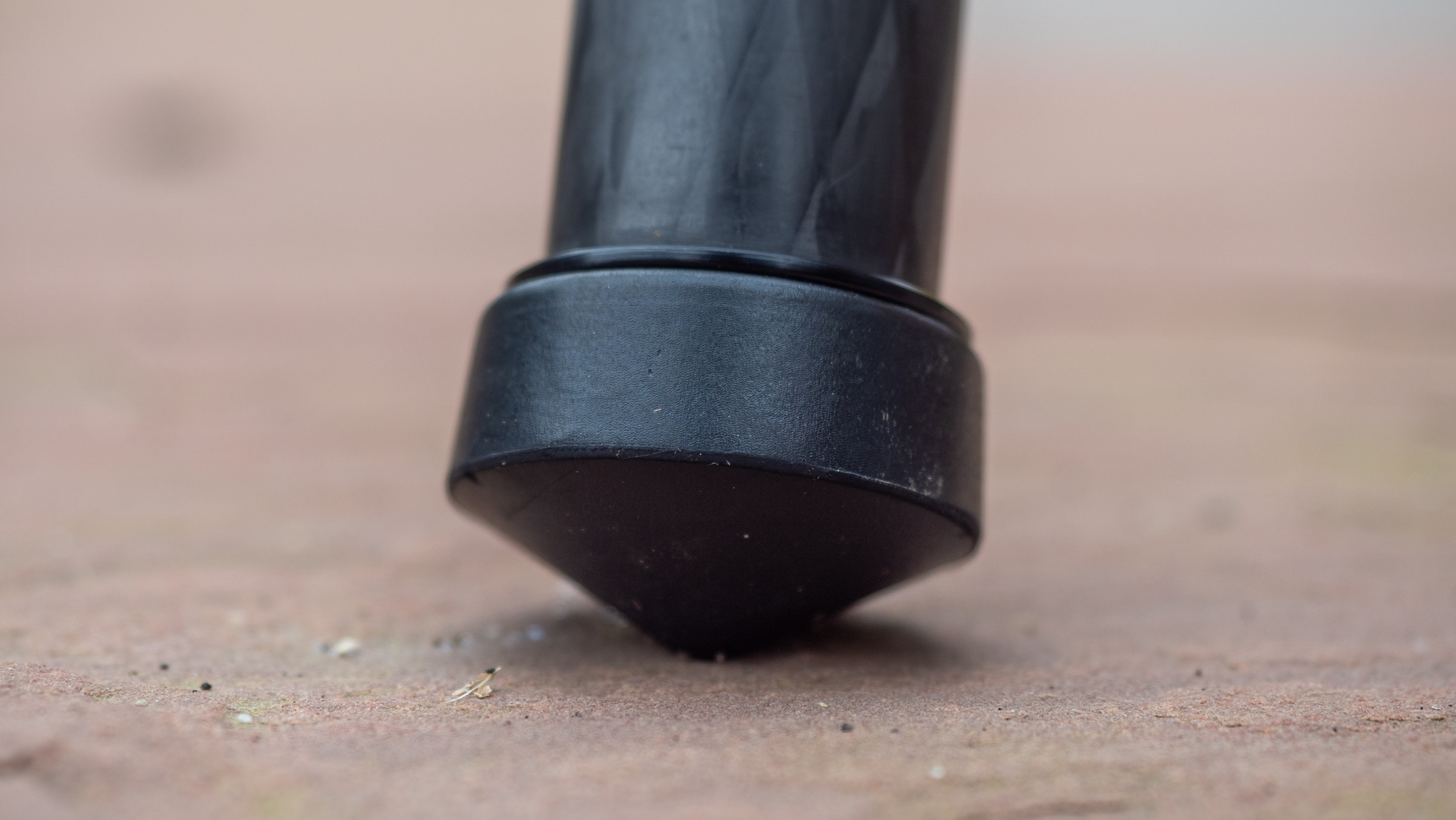
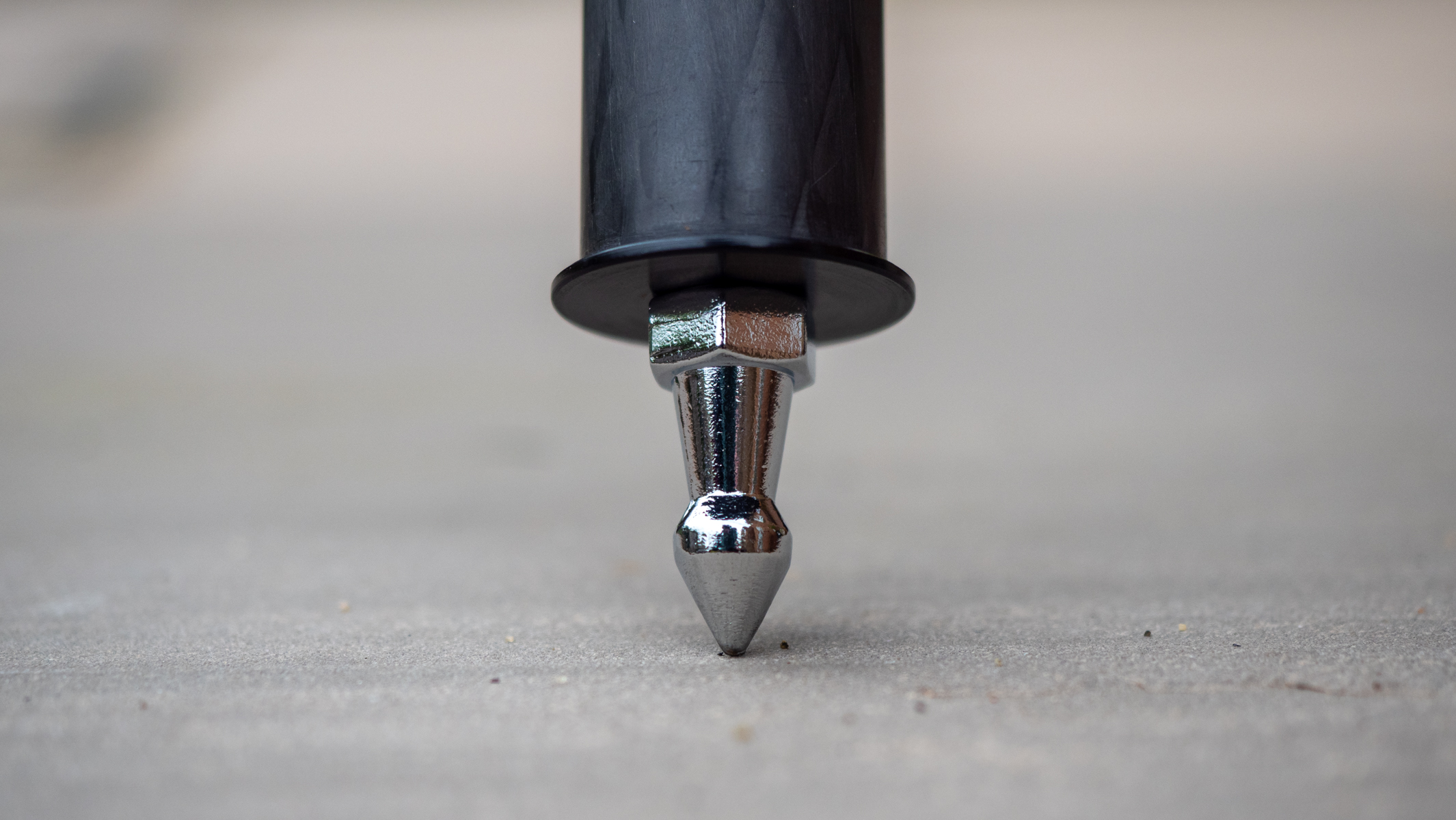
- No monopod functionality
- The central column can be reversed to shoot low to the ground
- Legs can splay to almost 90 degrees
The central column adds height for shooting at heights of up to 63.58 inches (161.5 cm) — though keep in mind that's without a head attached, which will add a few more inches — and the column can be reversed to shoot low to the ground, which can be useful for wildlife and nature photography.
There's no monopod conversion with the series 3, which we think would be a useful feature and would add another layer of versatility, but it's not a deal-breaker.
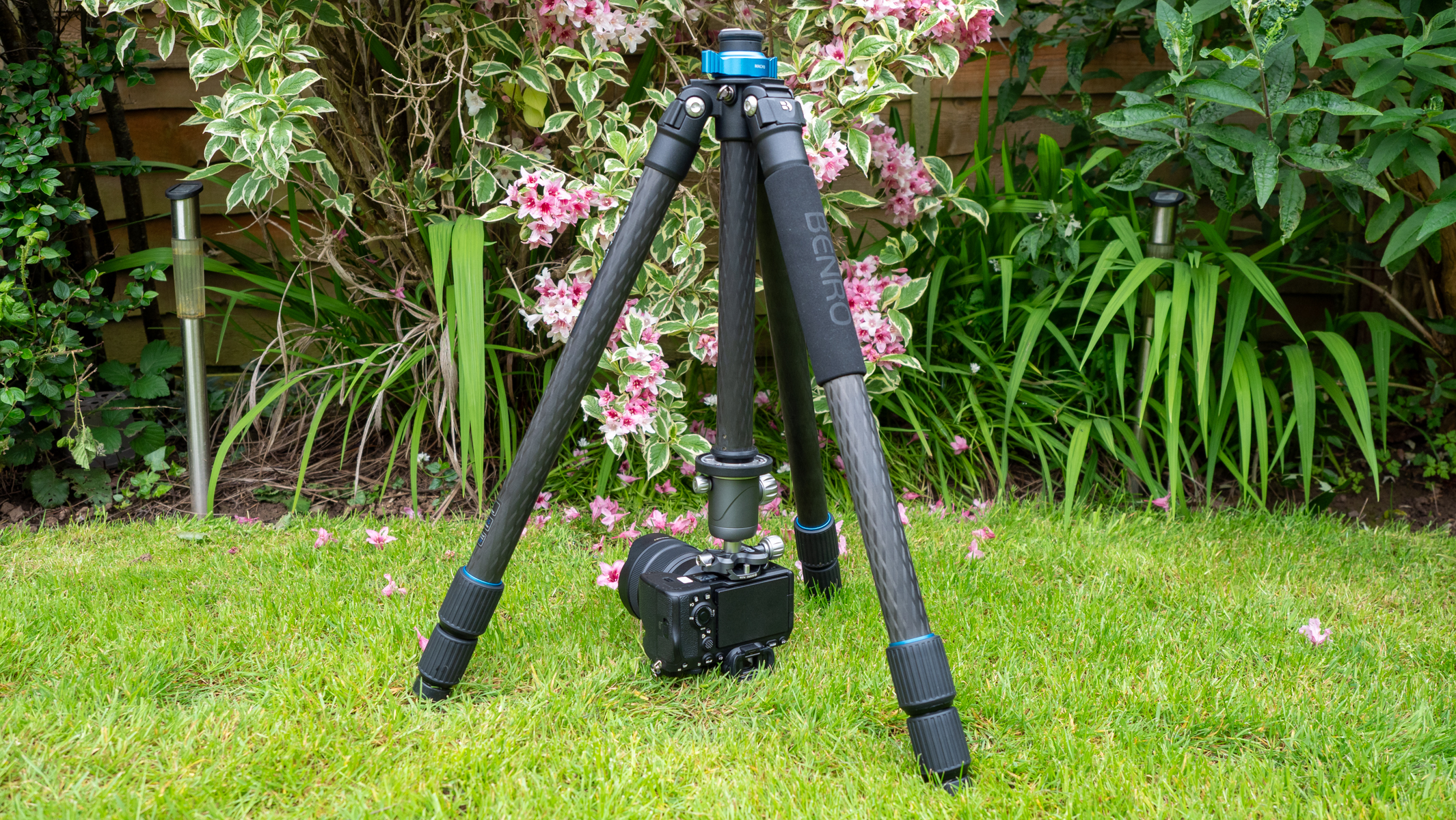
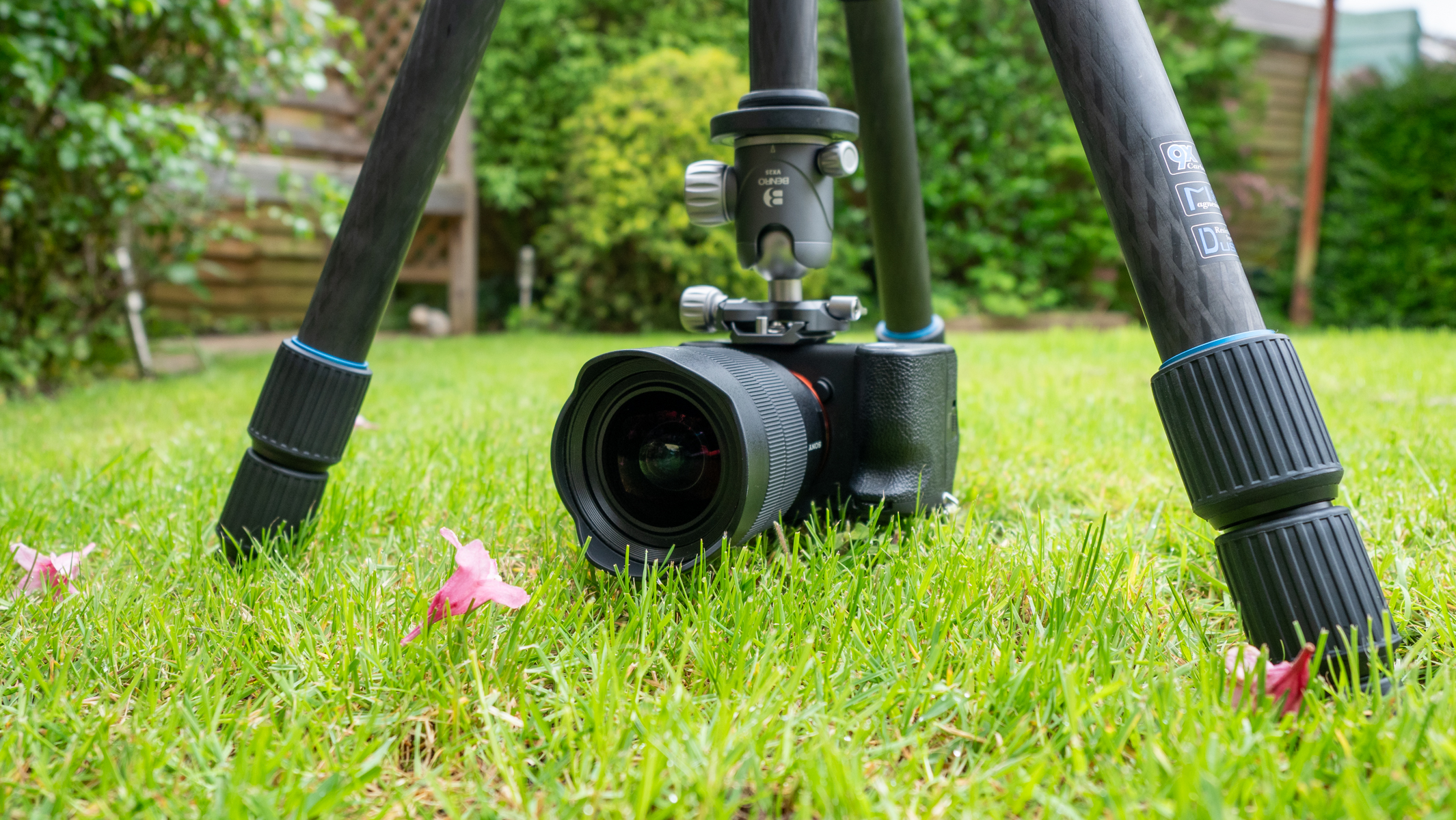
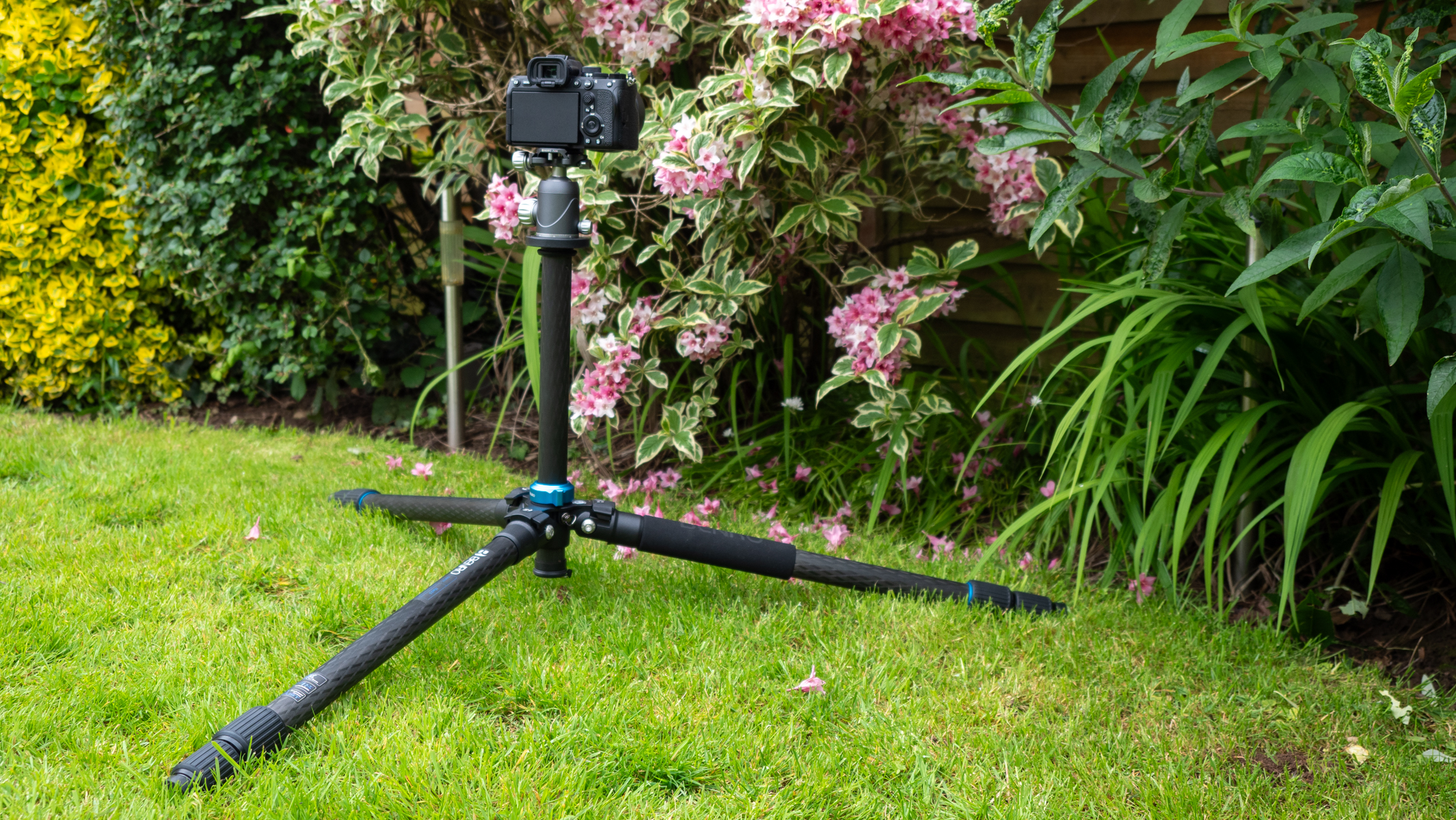
The legs can also be positioned to any angle thanks to the simple leg-locking mechanisms, and they can splay out to almost 90 degrees. It did come with a smaller attachment which looked like it swapped out with the center column to be able to shoot lower to the ground, however, when we tried that, we couldn't get it to fit for love nor money. Still, you can still get pretty low even with the main center column.
Should you buy the Benro Mach3?
✅ You need something sturdy: It has a high payload for heavy equipment and can hold its own in windy weather.
✅ You want an investment: If you can afford a Benro tripod, you'll get years of use out of it — they are built to last.
❌ You want to travel with it: There are other Benro tripods that are lighter and more compact than this one.
❌ You're a beginner photographer: Beginners will probably want to start out with something a little more affordable.
Users who are looking for a durable, sturdy tripod that will last a long time really can't go wrong with the Benro Mach3. It combines advanced design with classic materials and it's part of the company's most advanced range yet, suitable for both indoor and outdoor photoshoots for a number of different photographic styles.
It does come with a price to match, though. At the time of writing, it's just shy of $400 for the version with three-section legs and around $450 for the four-section — and that's without a head attachment. But if you can afford it, we think it's worth it.
That said, if you're a photographer who travels a lot and you want something small and lightweight to fit into your carry-on or suitcase, this is probably not the tripod for you — it has quite a large footprint when folded, both in width and length. We've listed some alternative options below if you're looking for something more travel-friendly.
If the Benro Mach3 isn't for you
If you want a Benro tripod but don't think the Mach3 is quite right for you, consider the Benro Rhino, which we reviewed on our sister site. It's smaller and more compact than the Mach 3 thanks to its reverse folding design, making it more suitable for photographers who want to travel with their tripod. It has a monopod conversion for added versatility, and it also has a slightly higher payload. The Tortoise is also good for travel as it folds up much thinner due to there being no central column.
For beginners or anyone on a budget, the Mach3 is most likely overkill. If you're wanting something more affordable, check out the Manfrotto Element MII. It's an aluminum as opposed to carbon fiber construction, but still a bit lighter than the Benro Mach3. You can certainly tell the difference in quality when you compare the two, but for the price, we still thought the Manfrotto Element MII was a fantastic tripod.
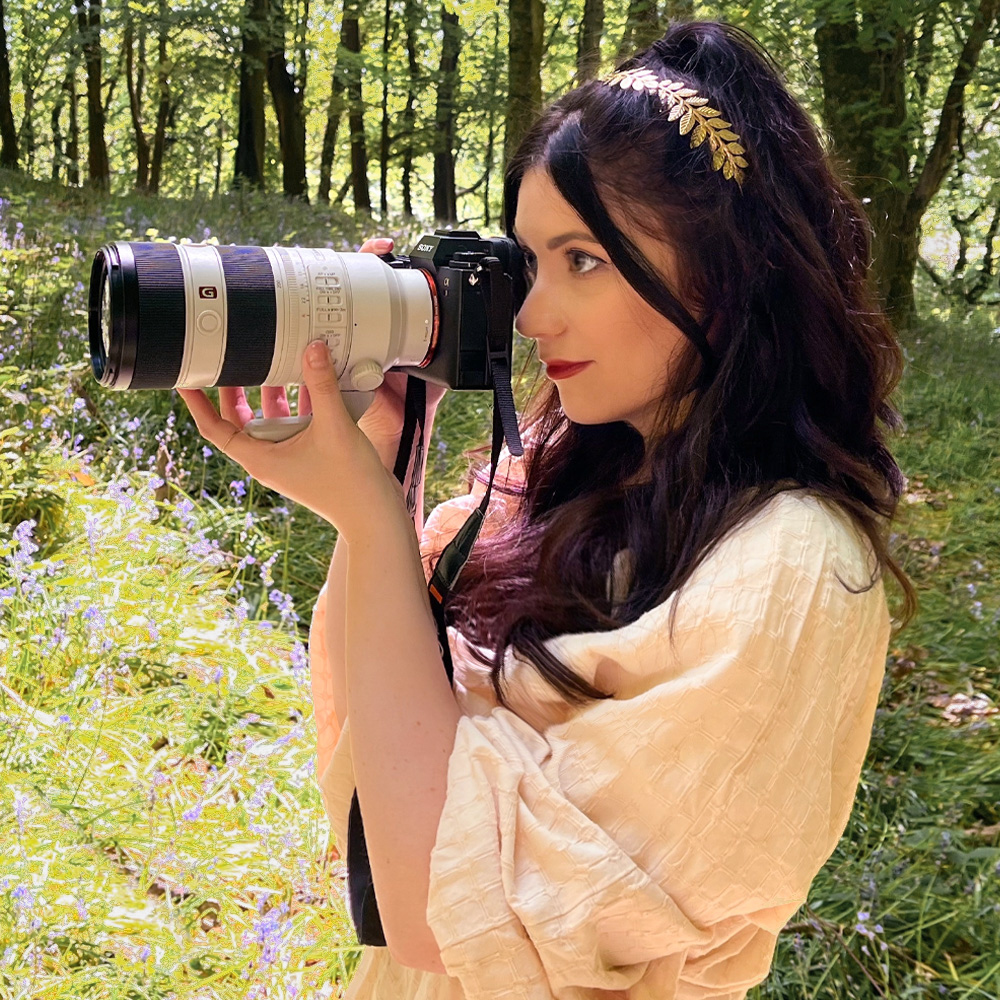
Kimberley Lane, E-commerce writer for Live Science, has tested a wide range of optics equipment reviewing cameras, lenses and tripods, and getting hands-on observations with binoculars and more. Also a landscape & seascape photographer living in South Wales, she aims to portray a feeling of calm and peaceful moments through her images. Her work has also been featured in a number of national photography magazines and she regularly contributes to our sister site Space.com.
